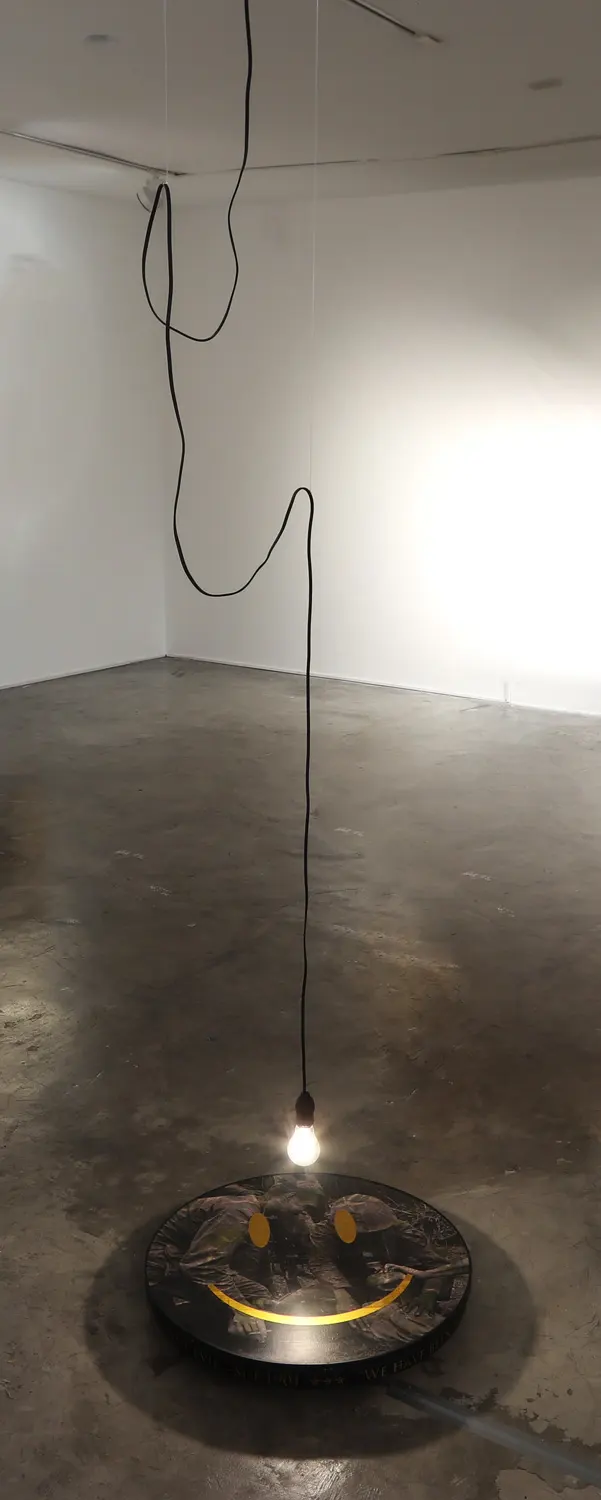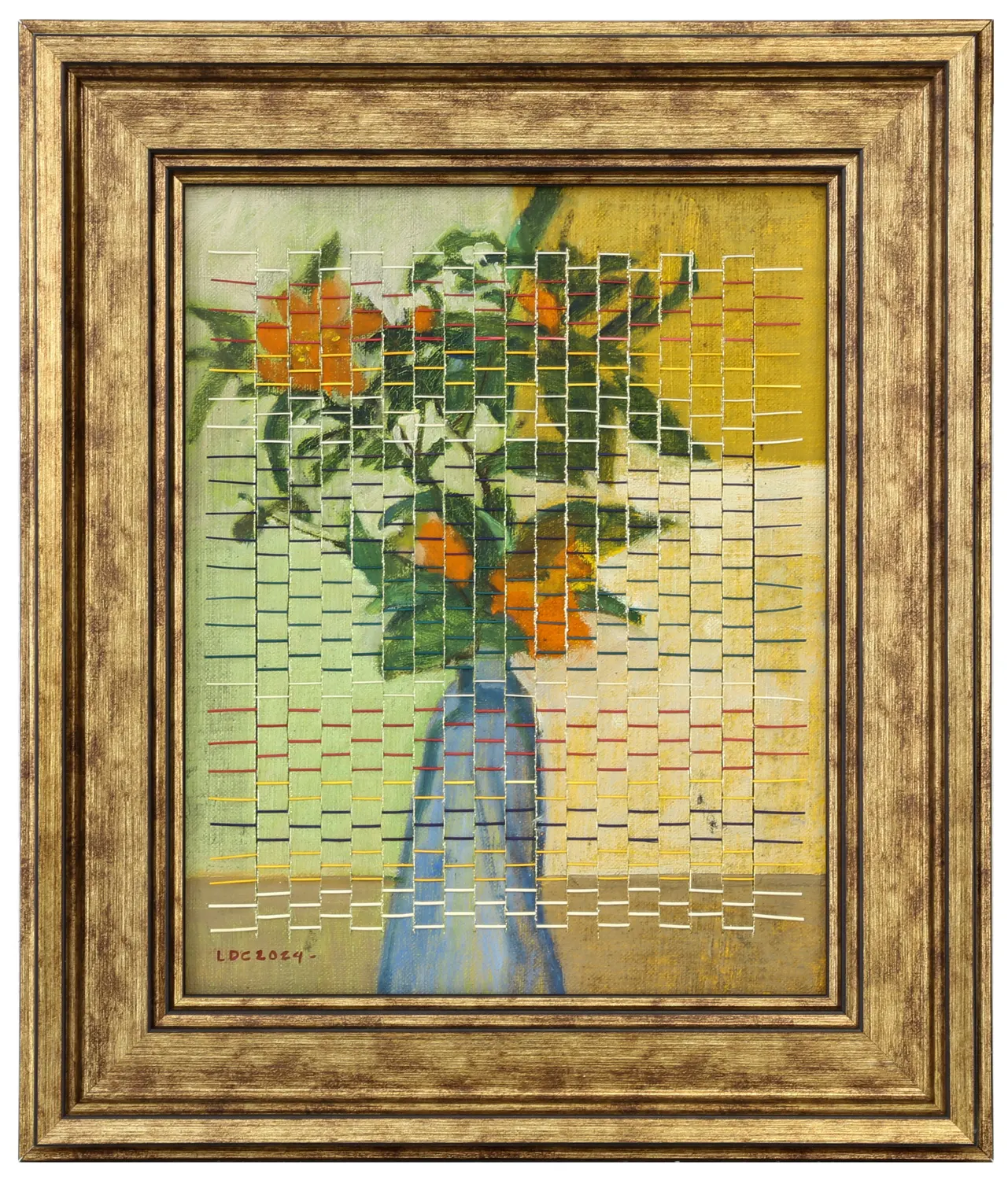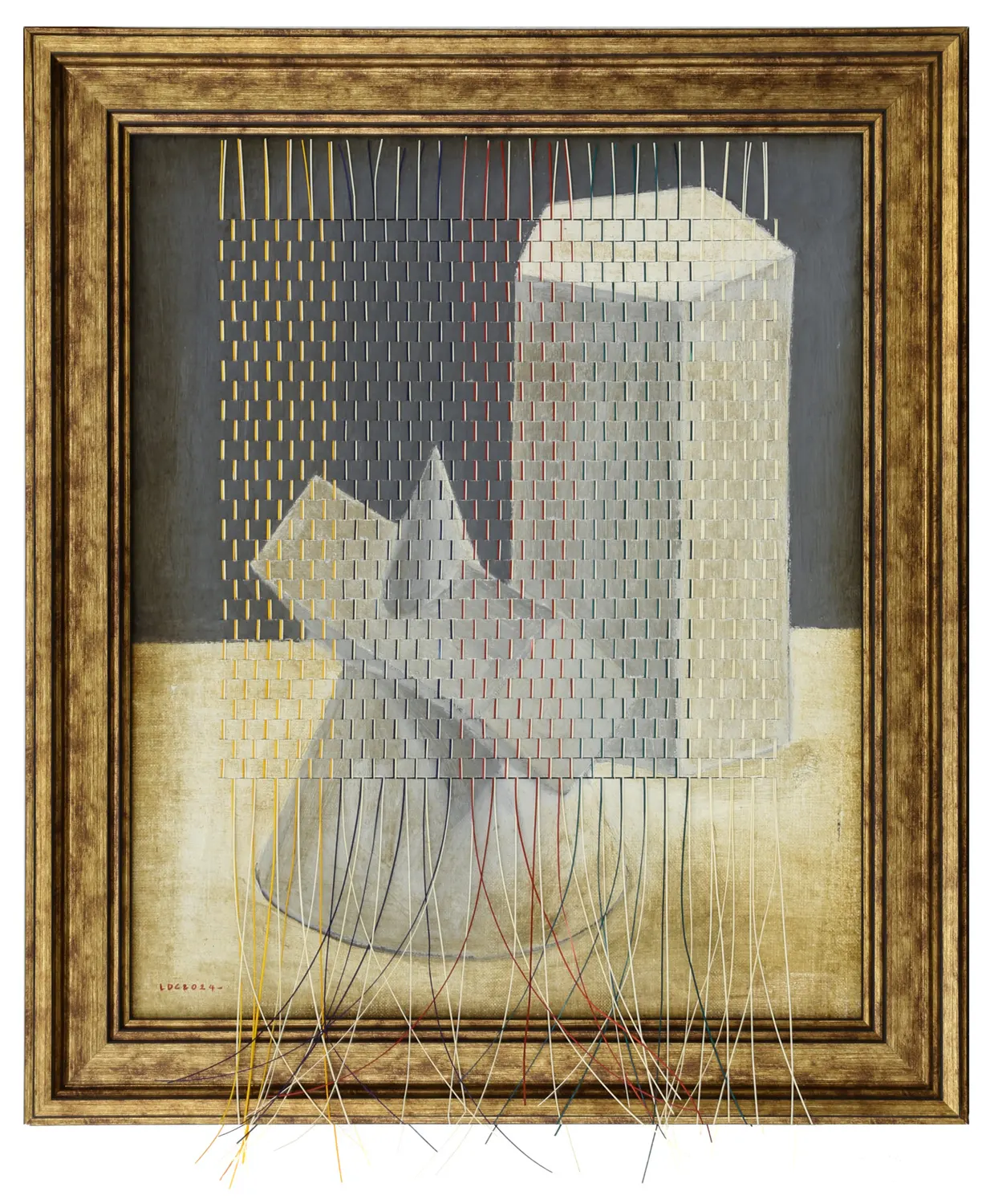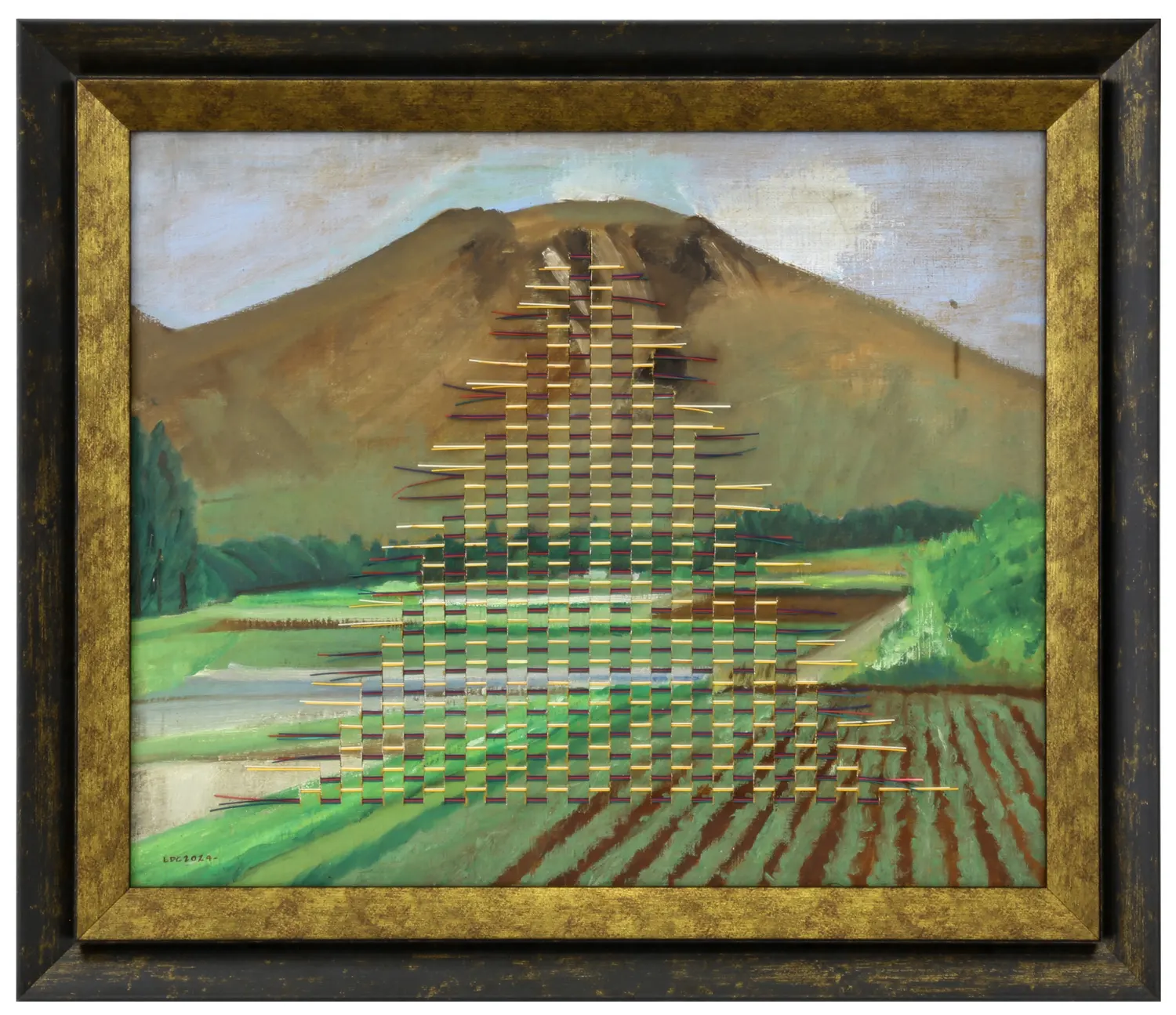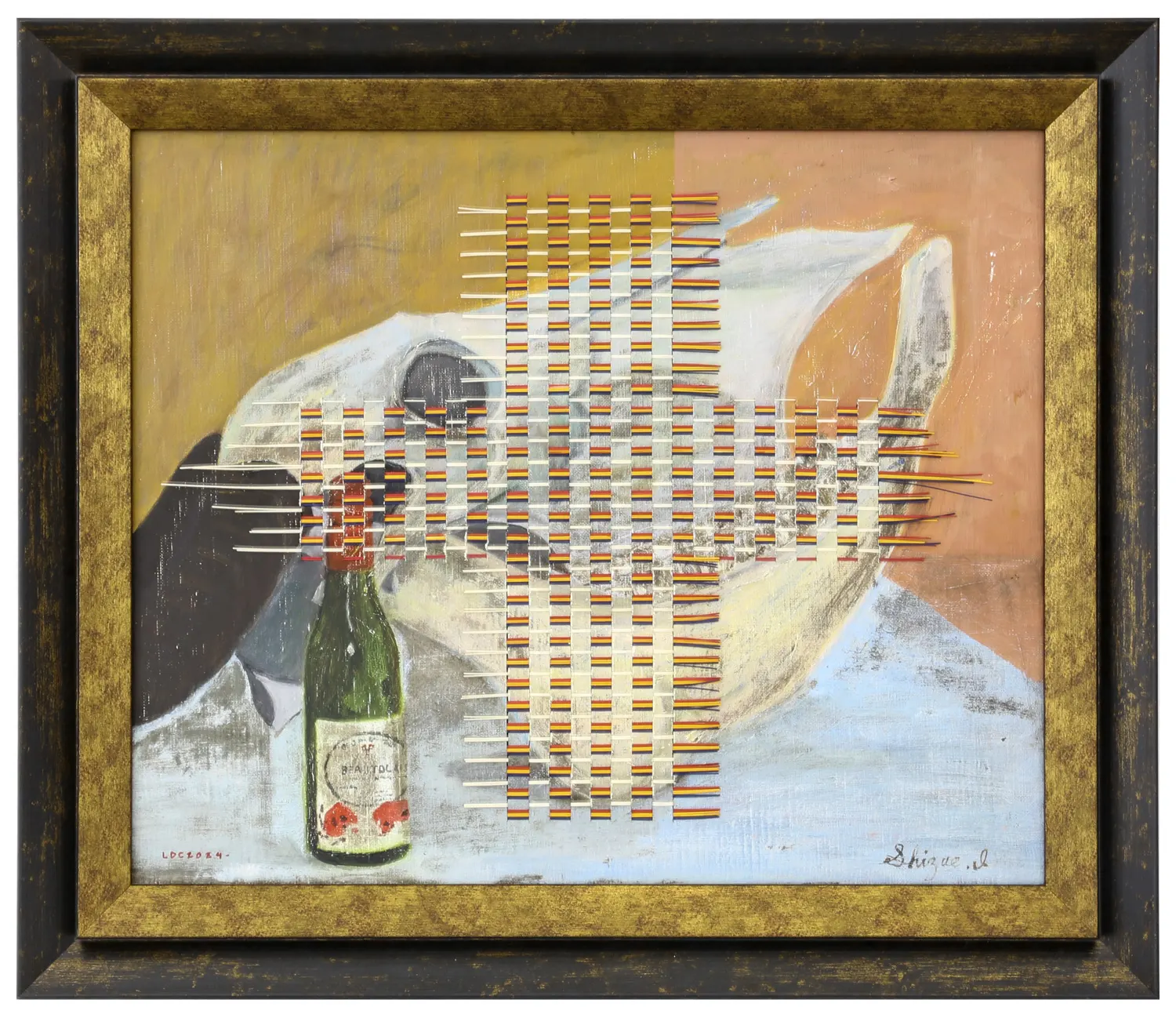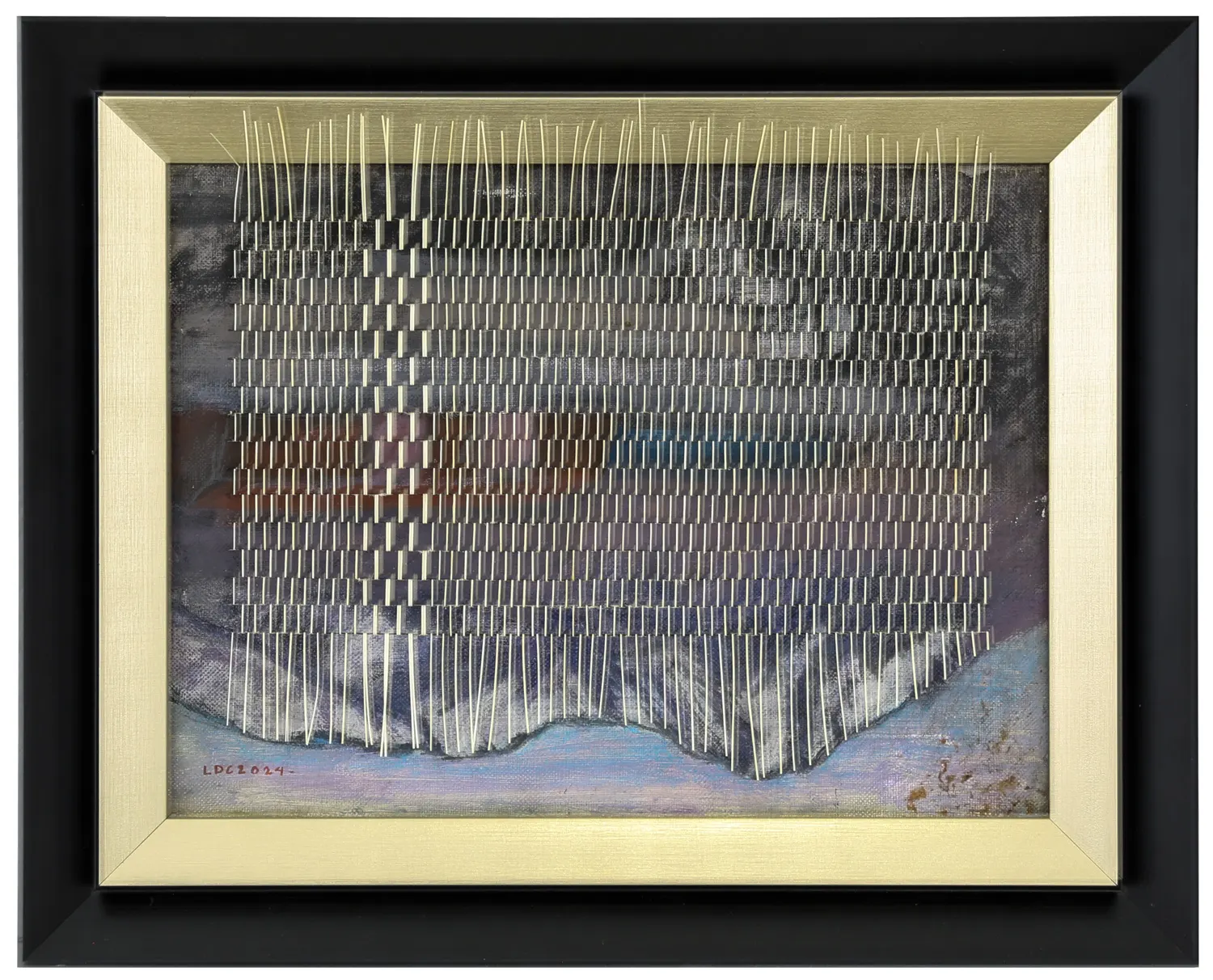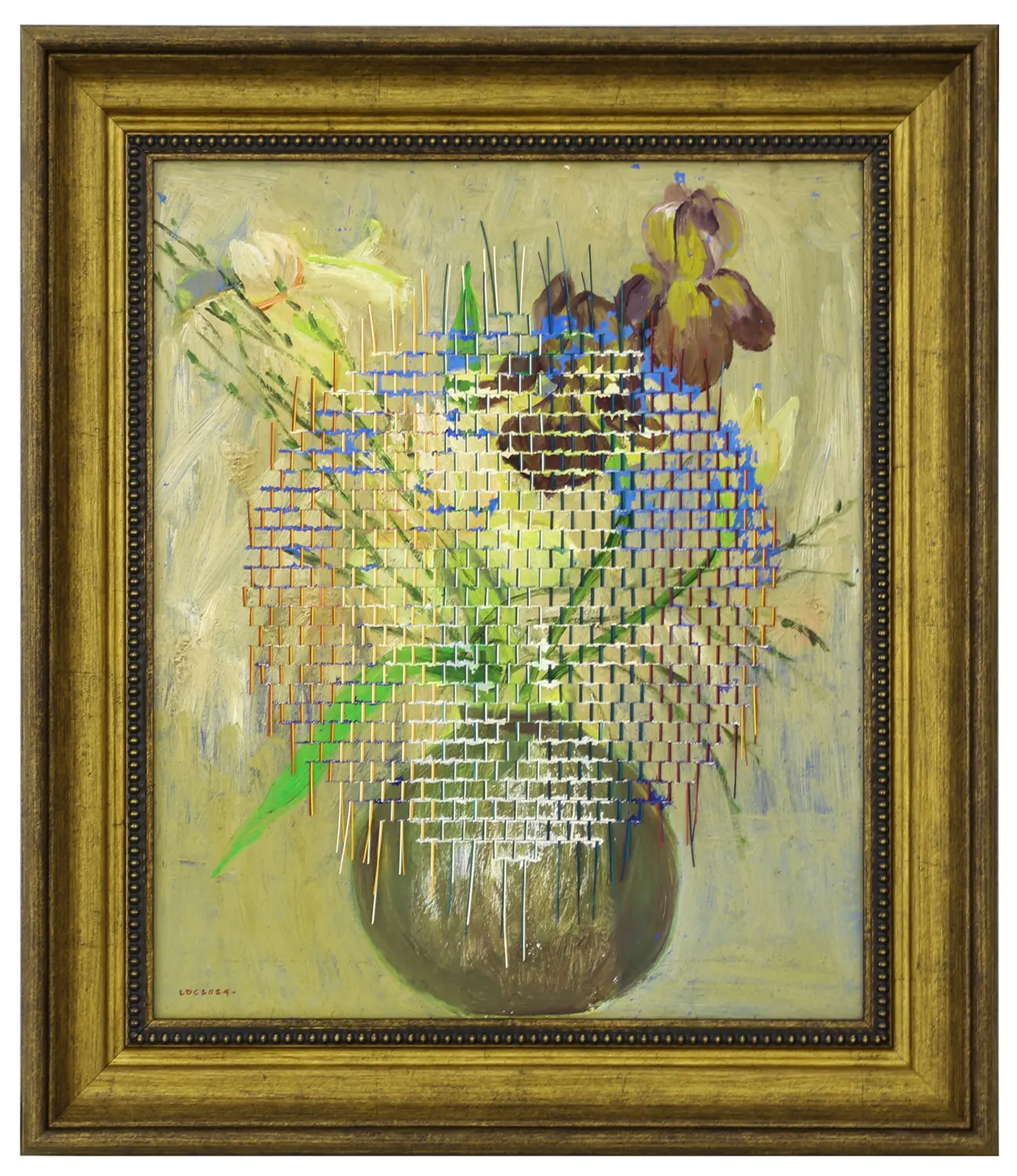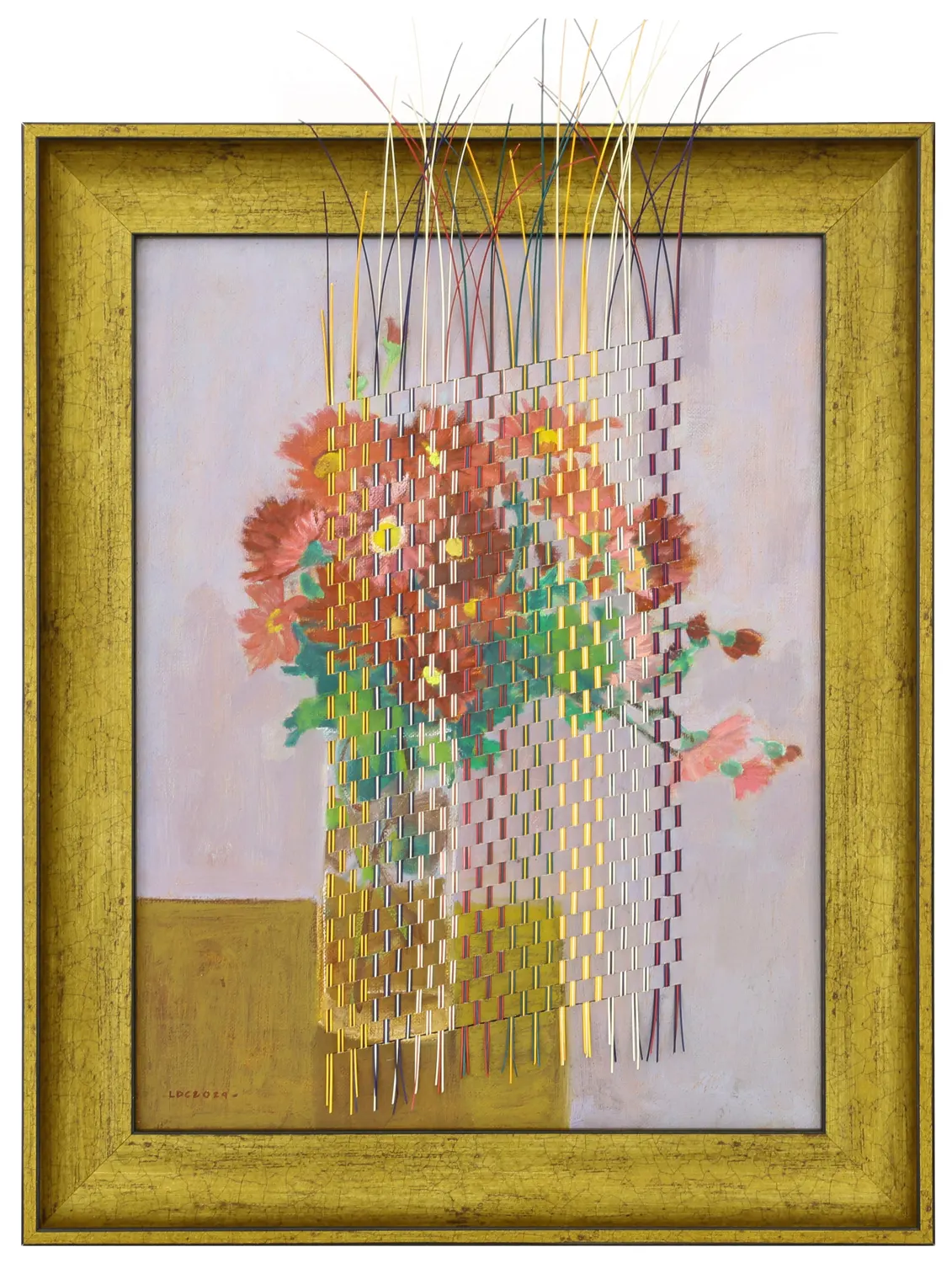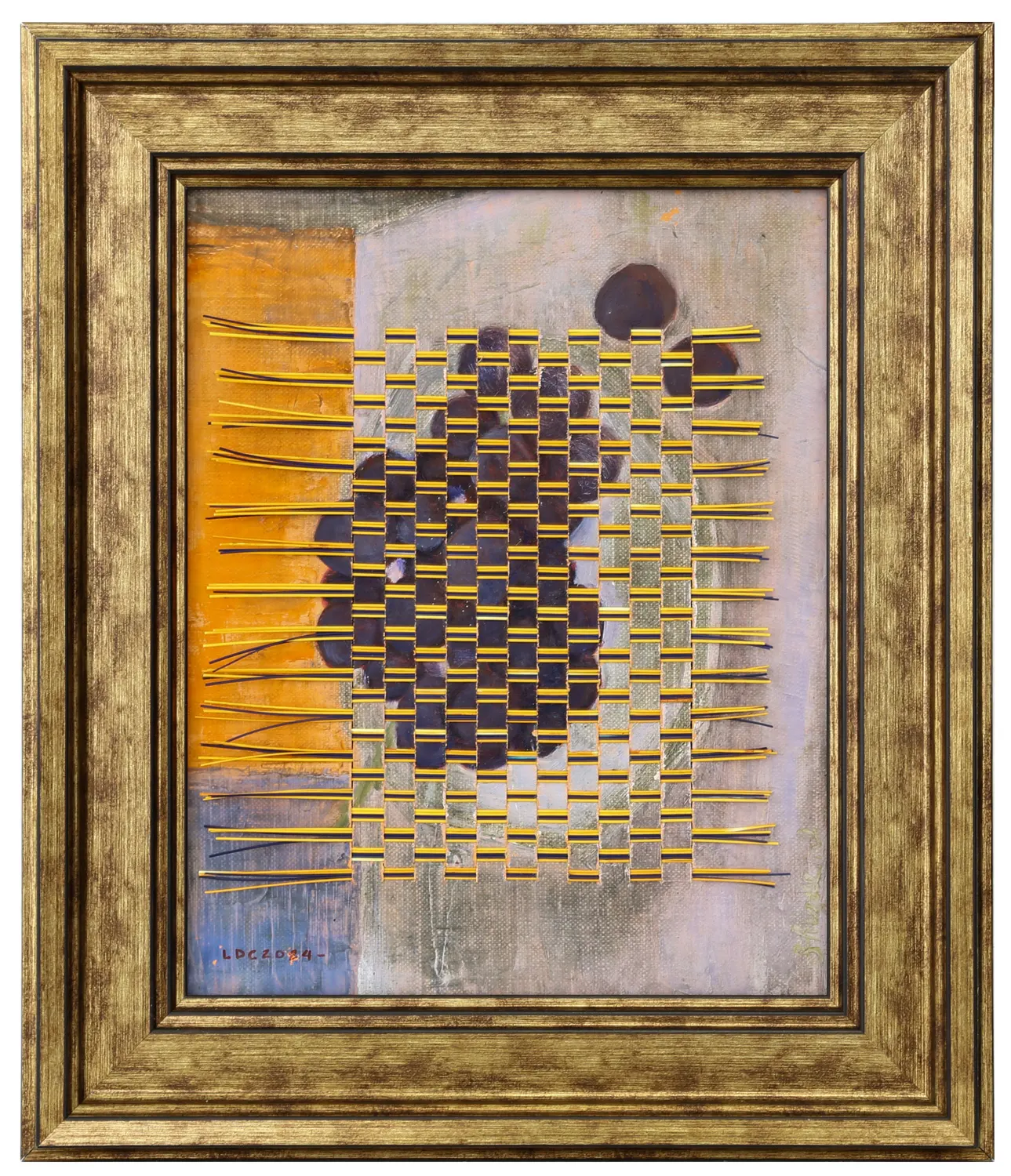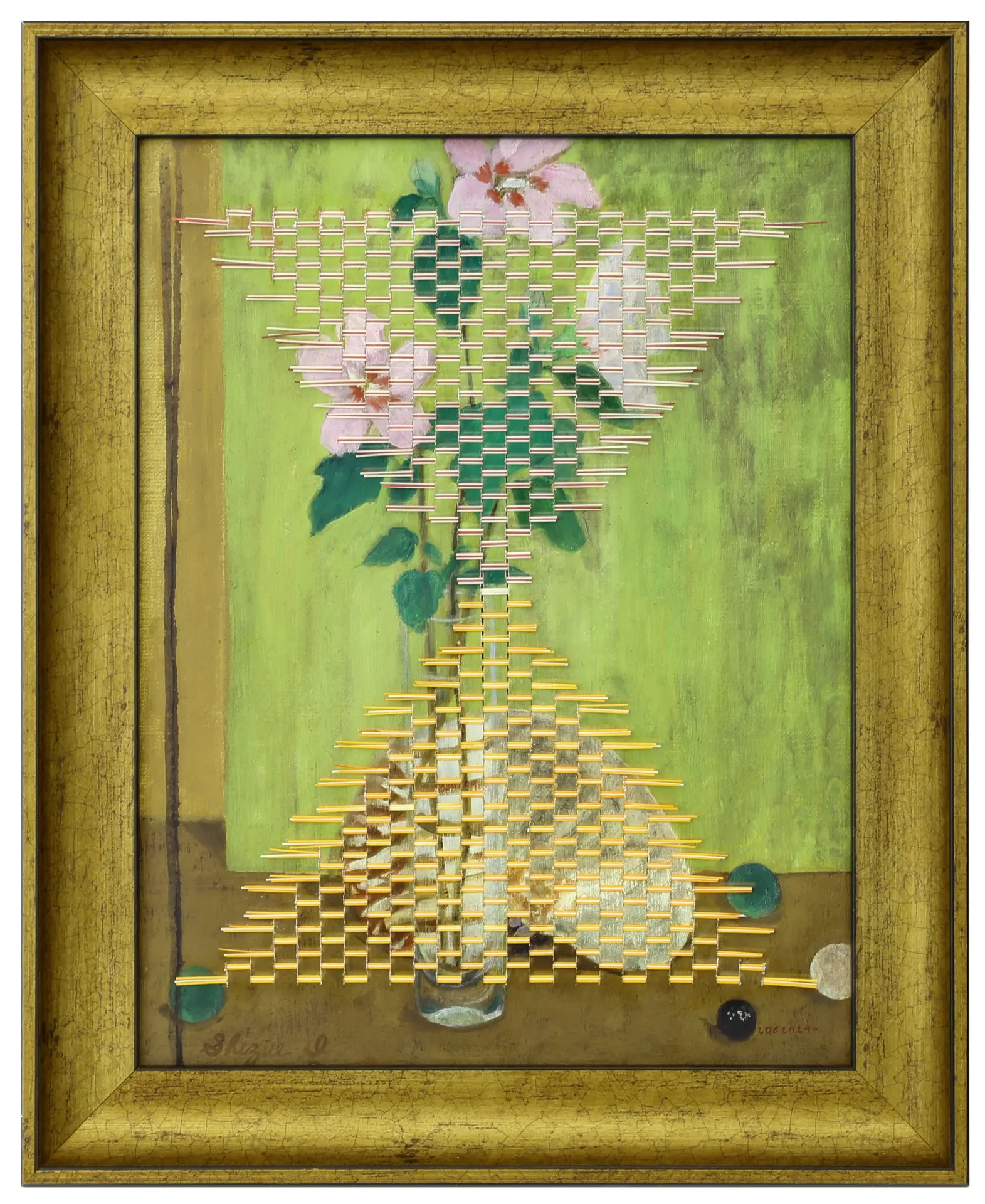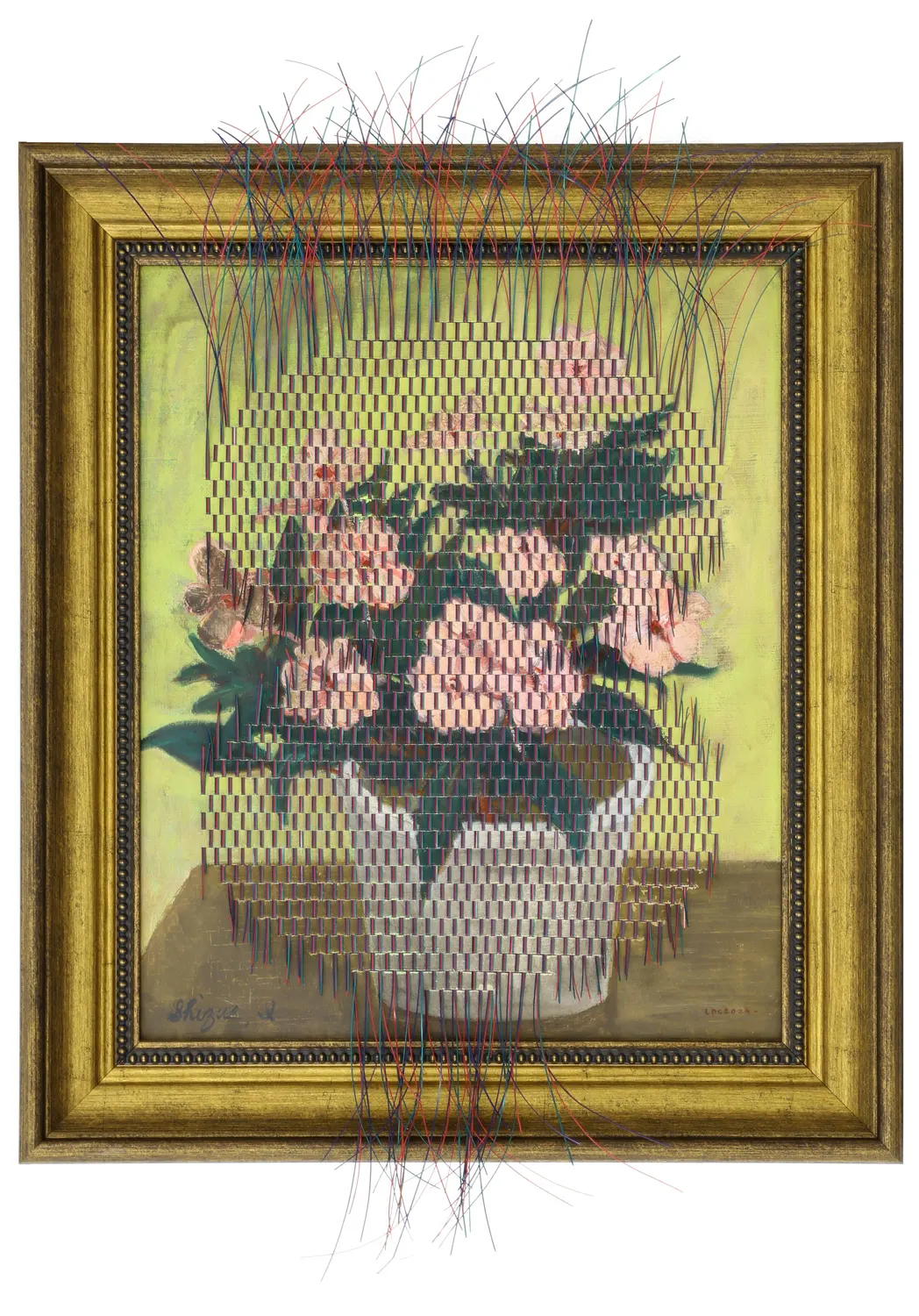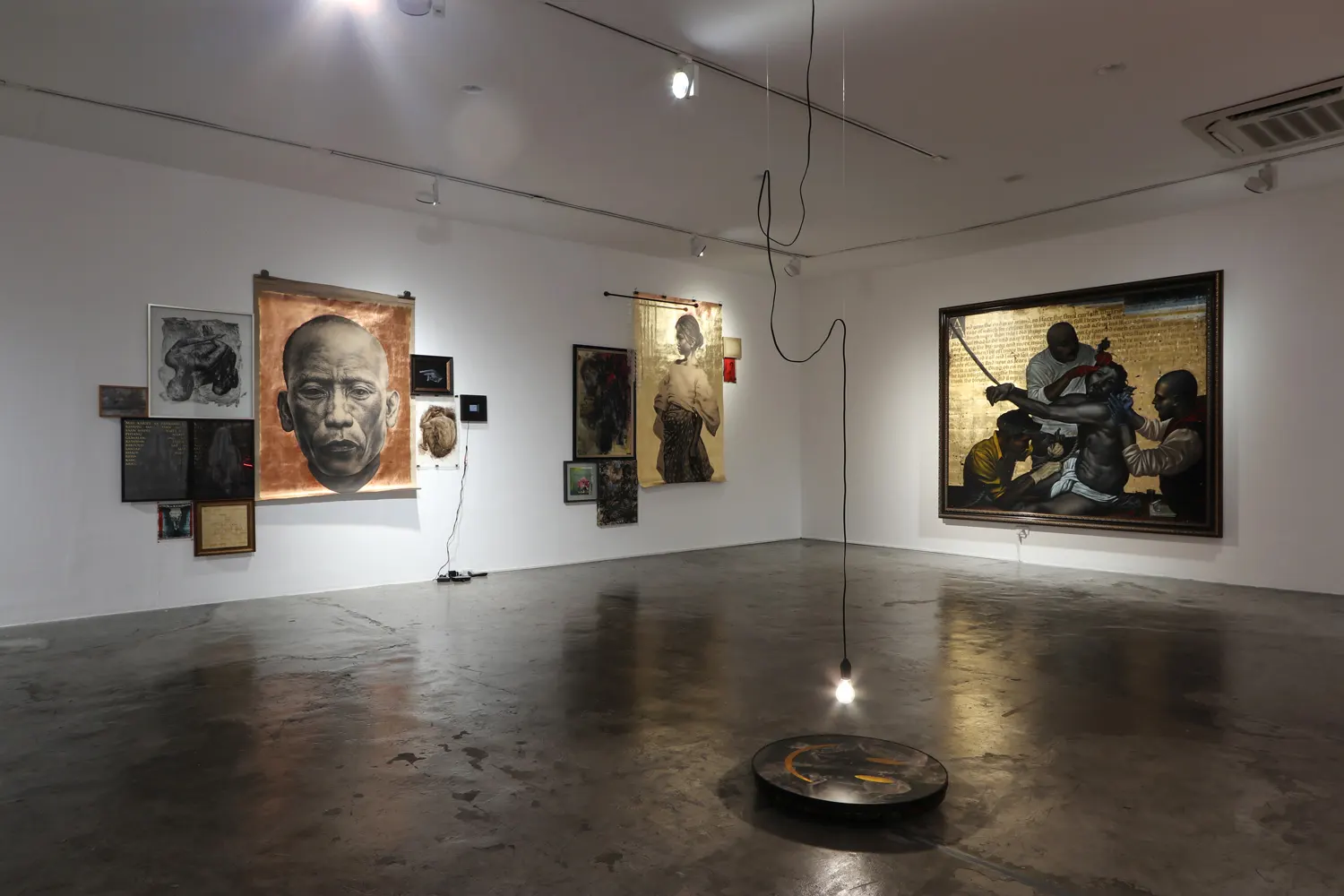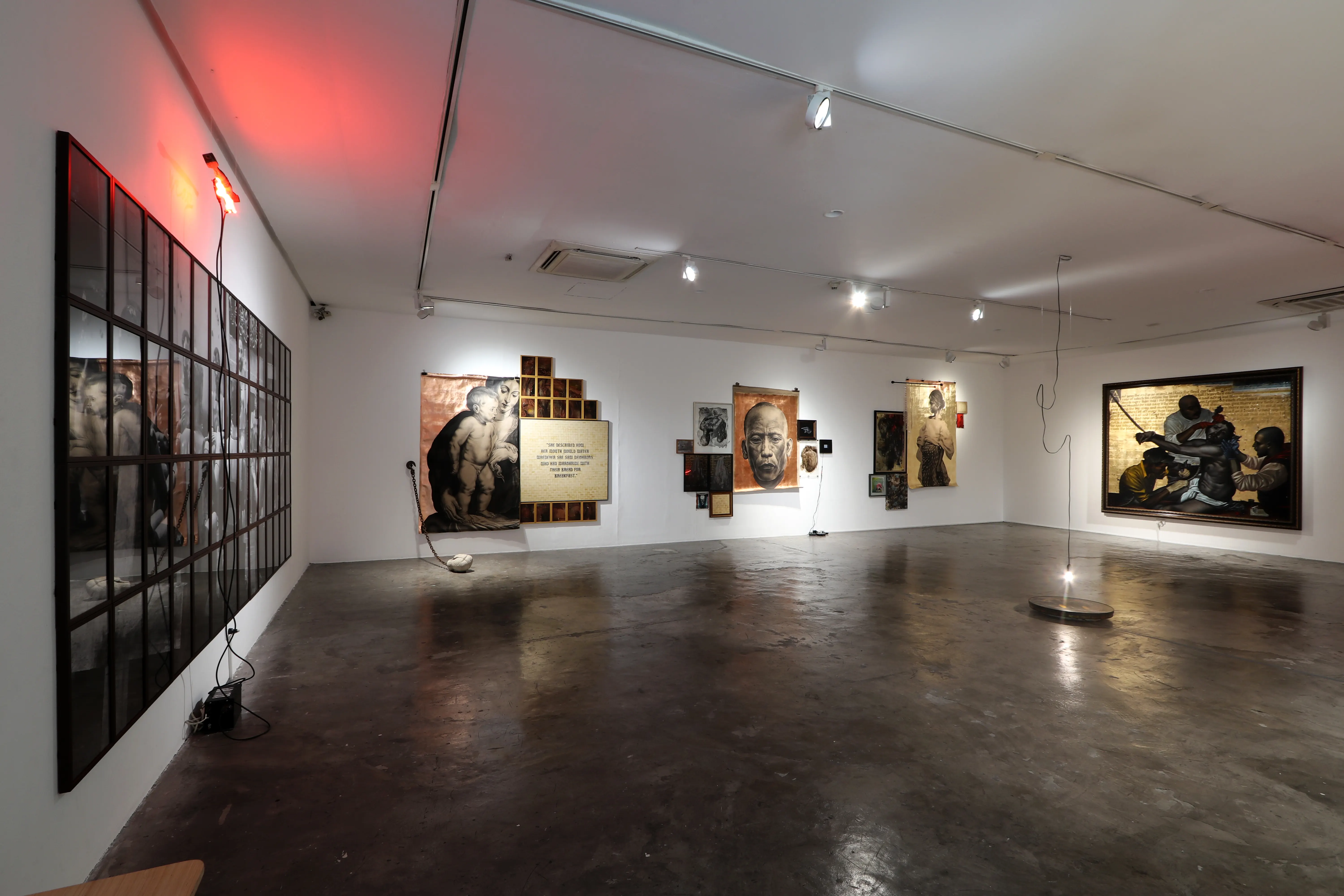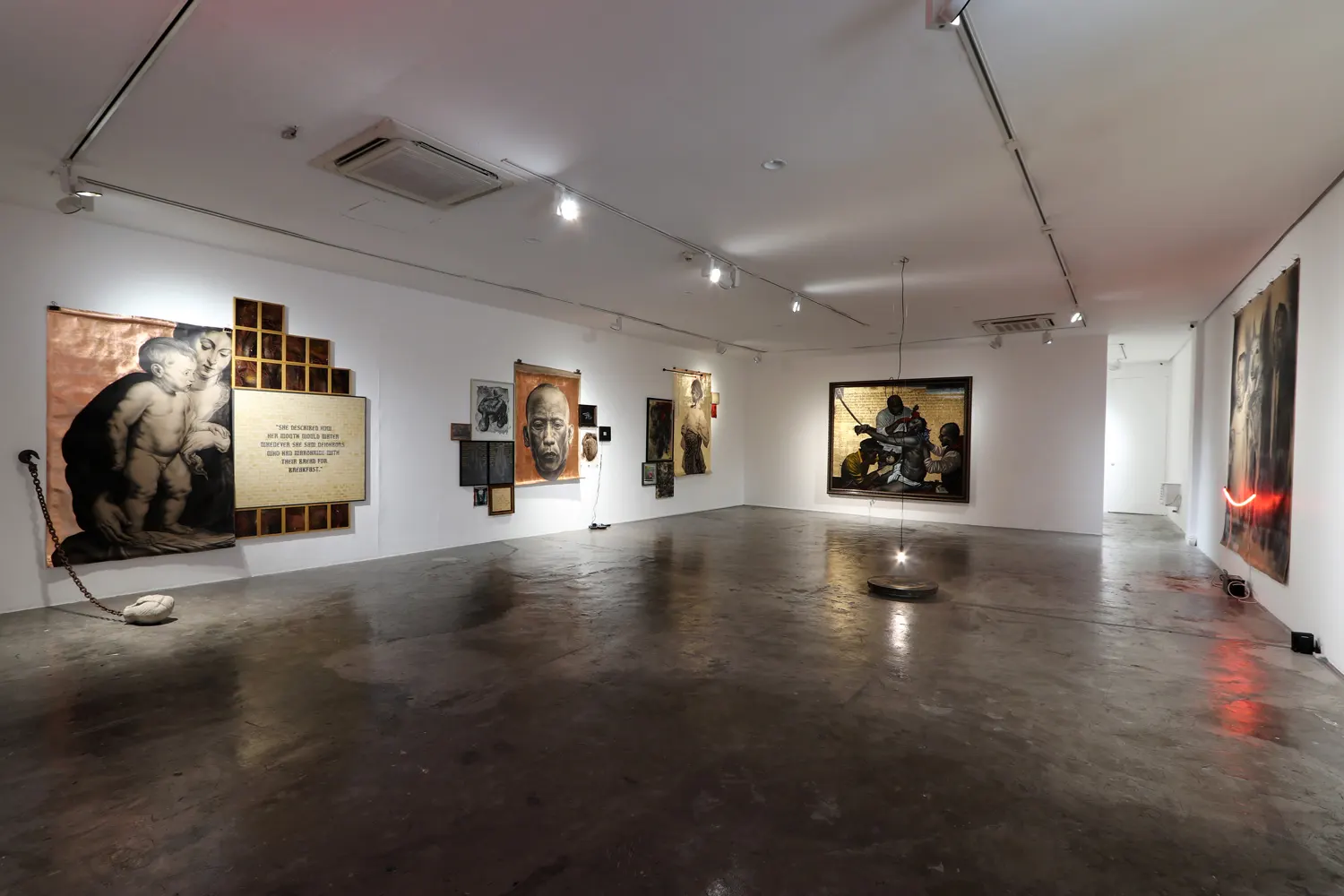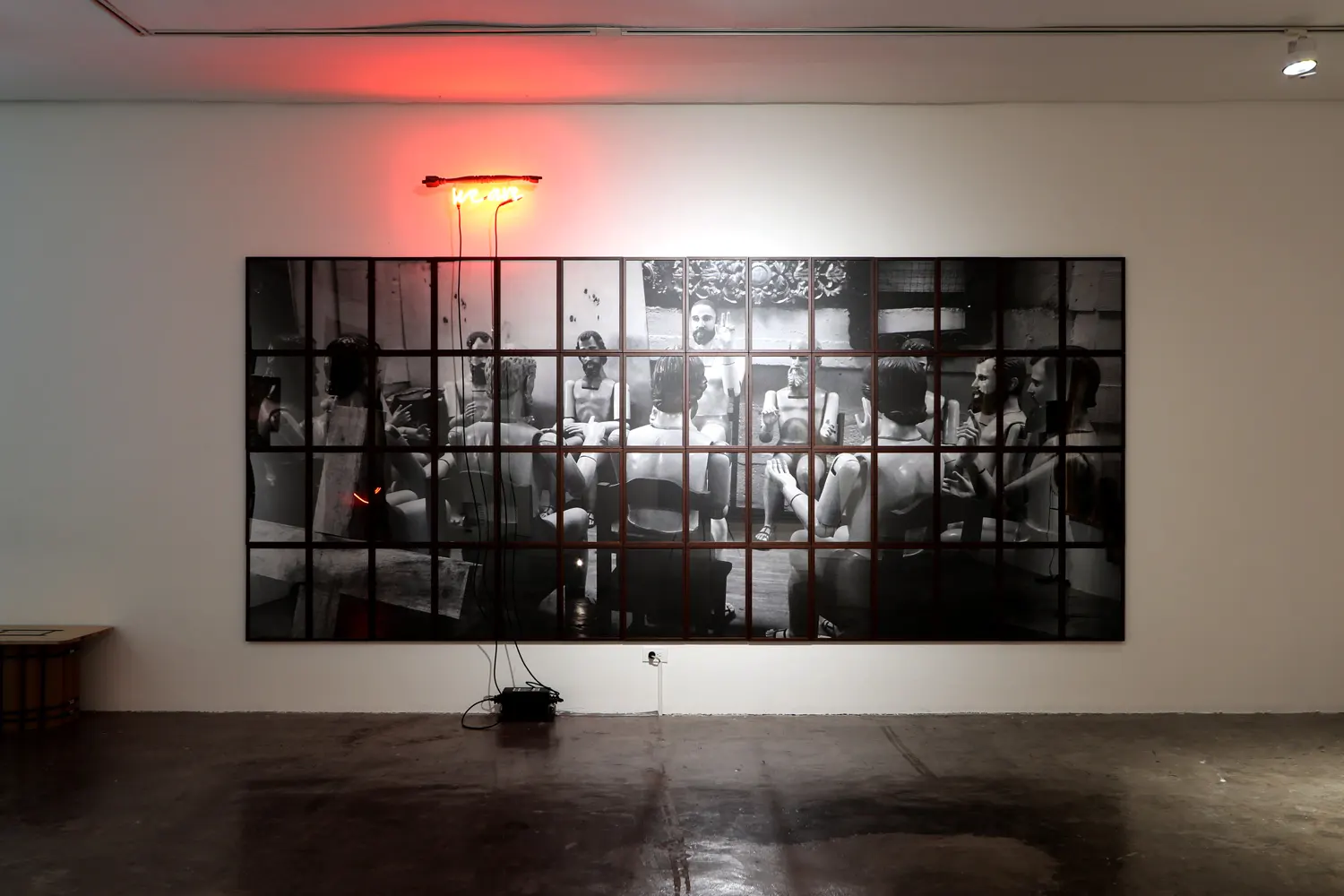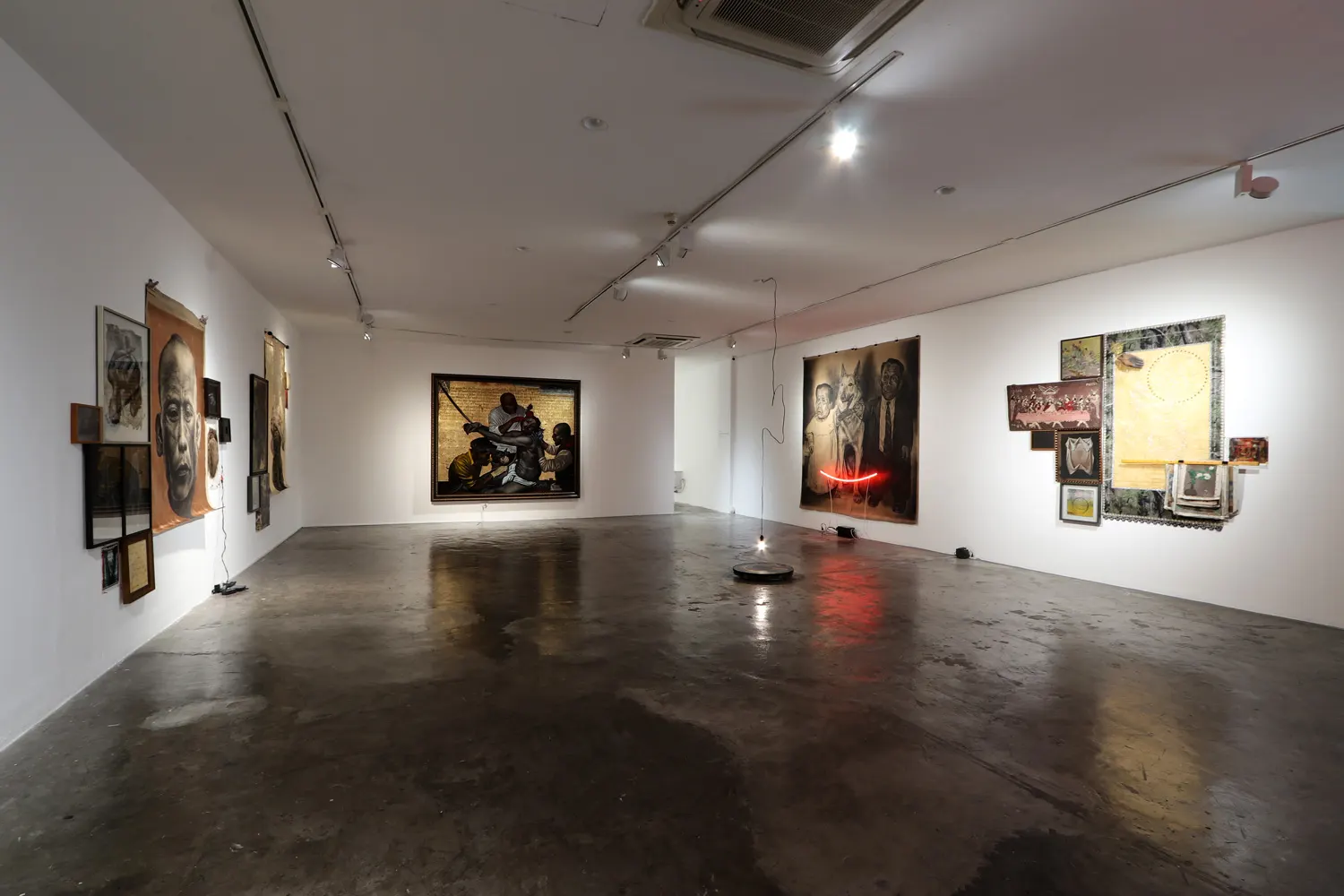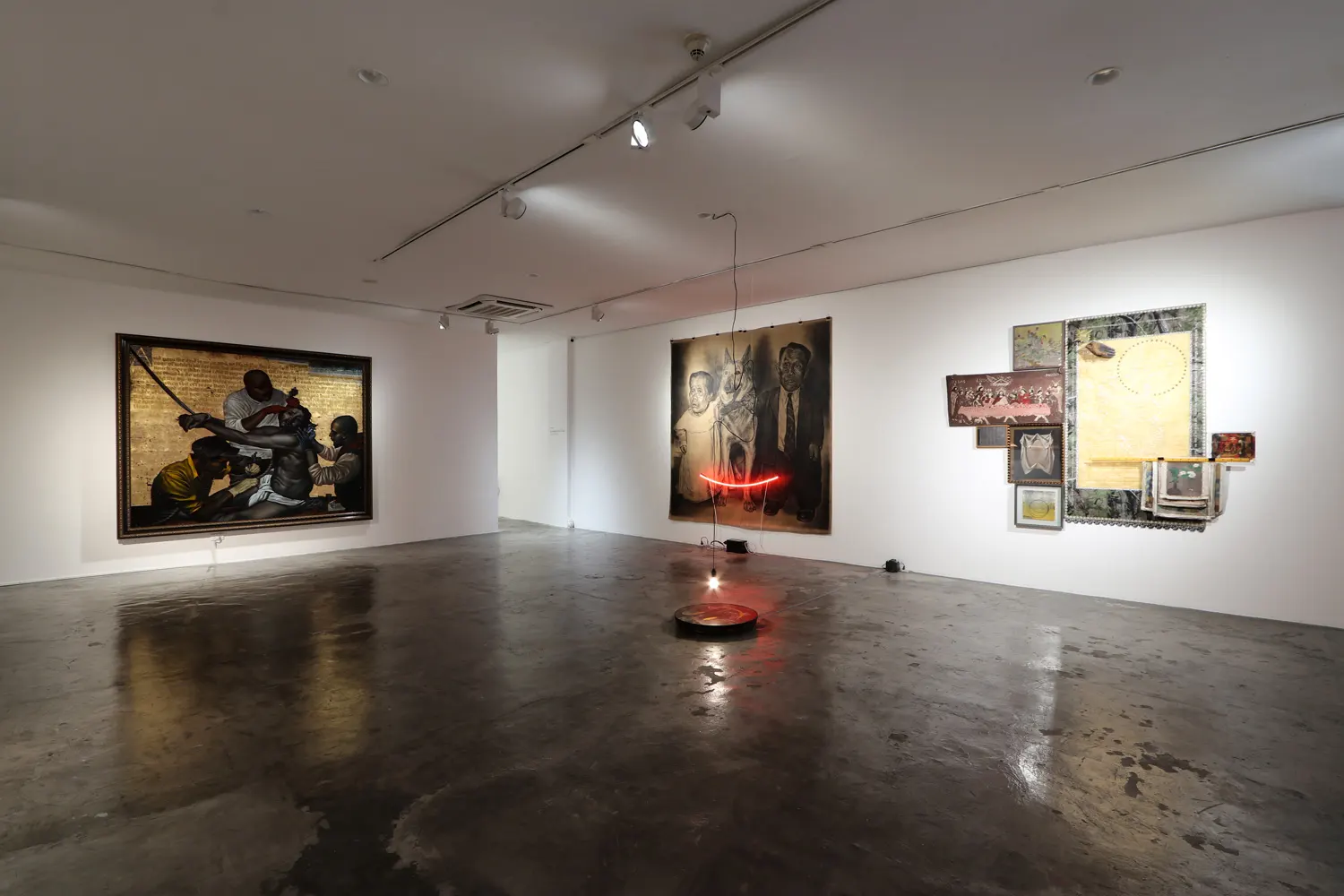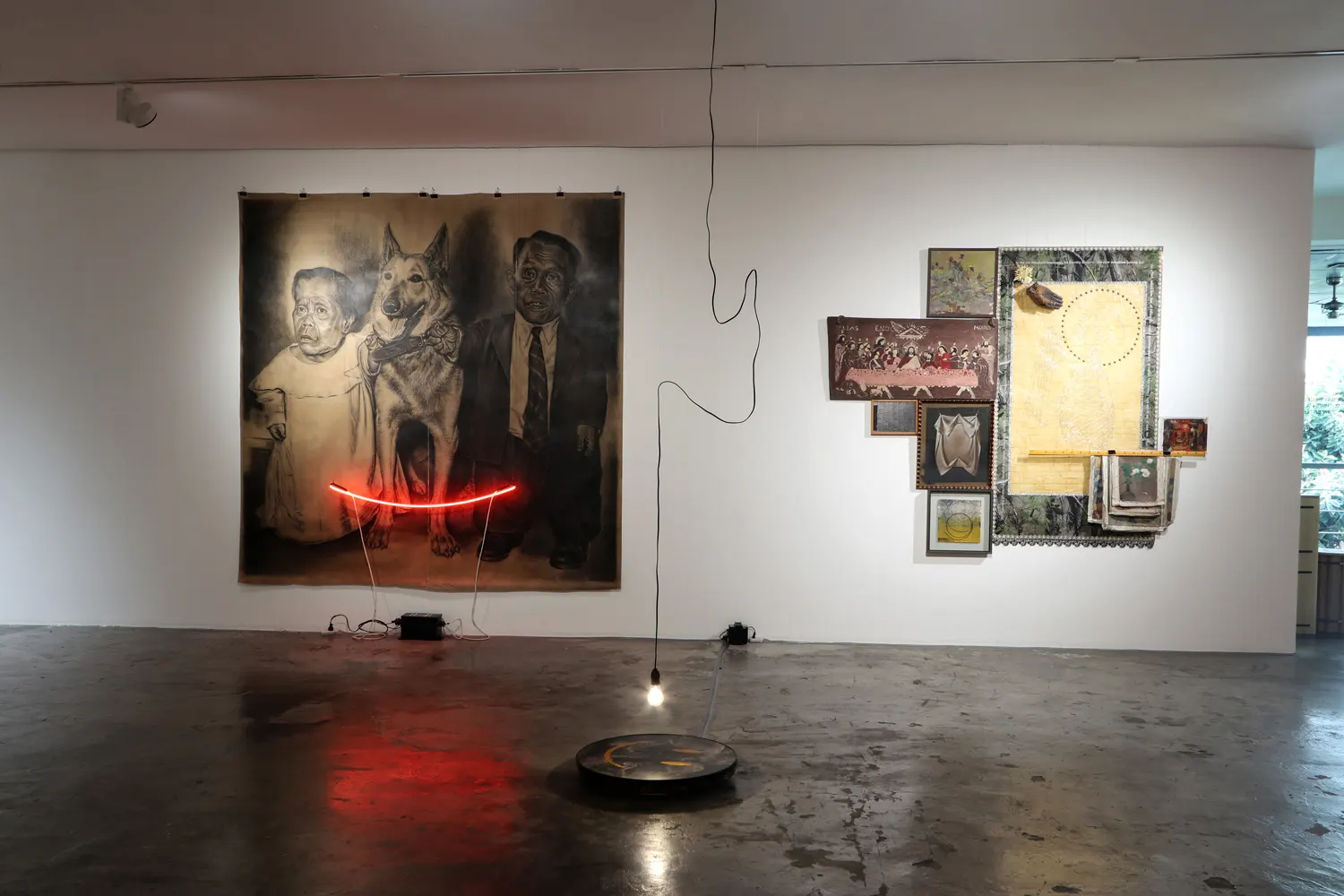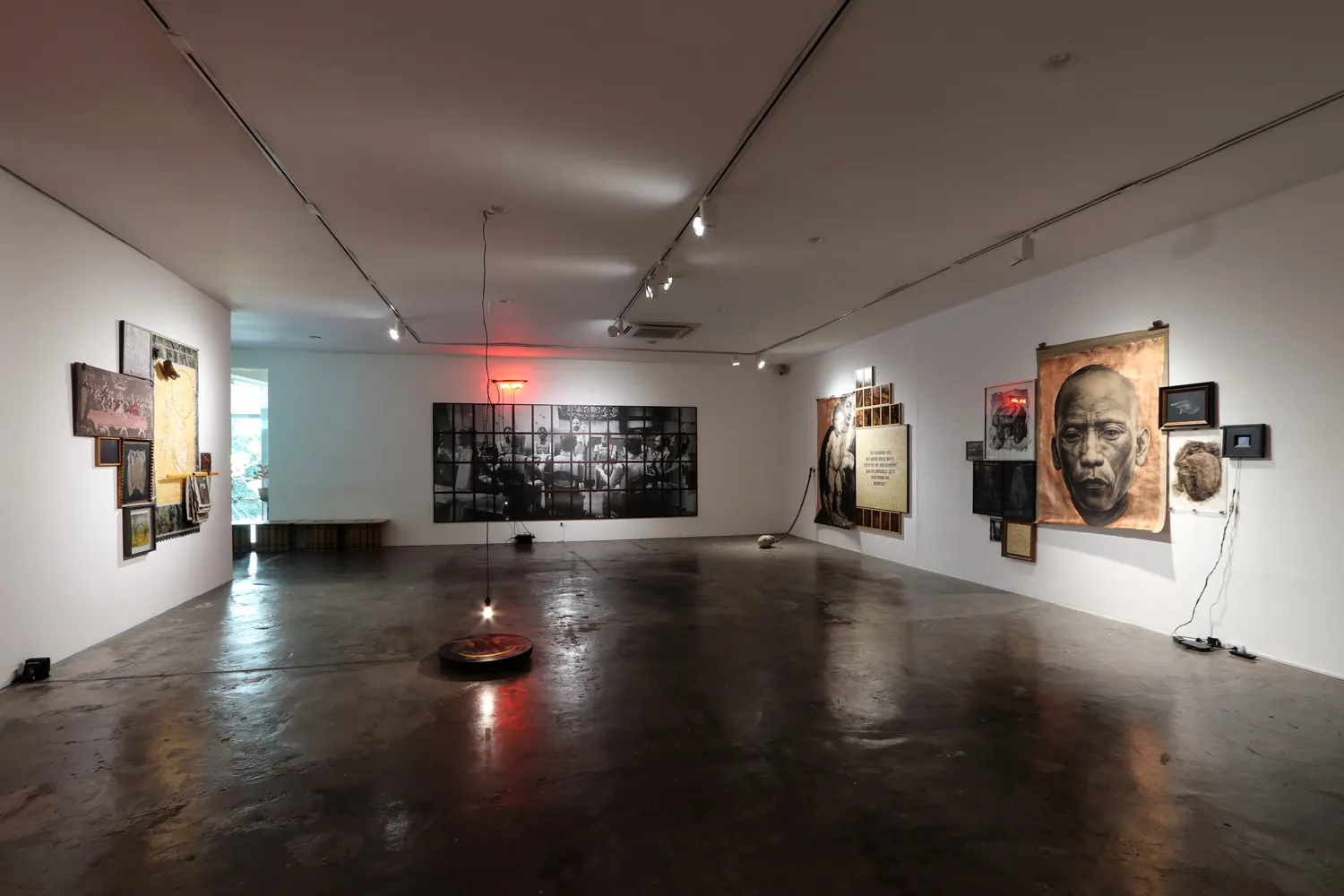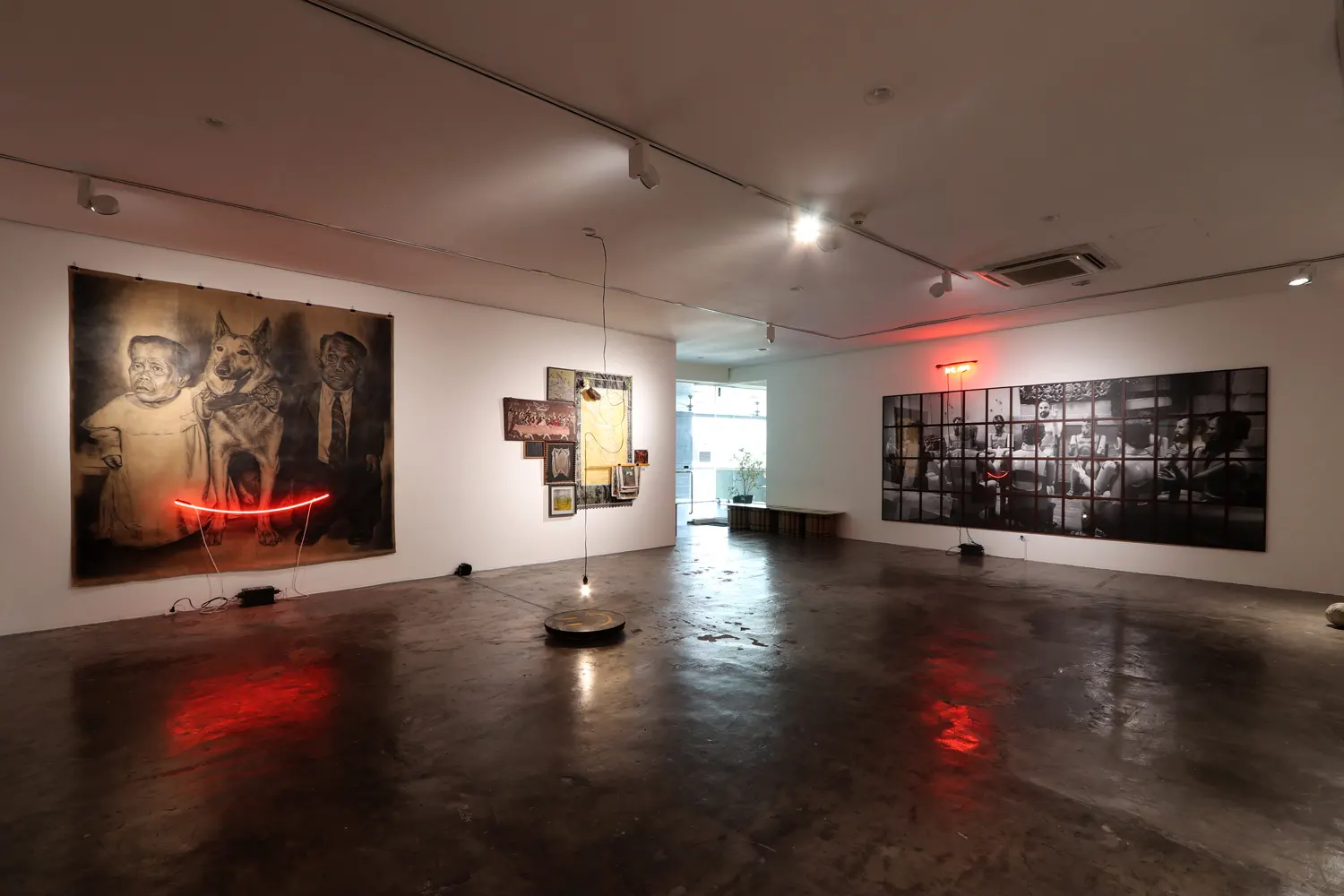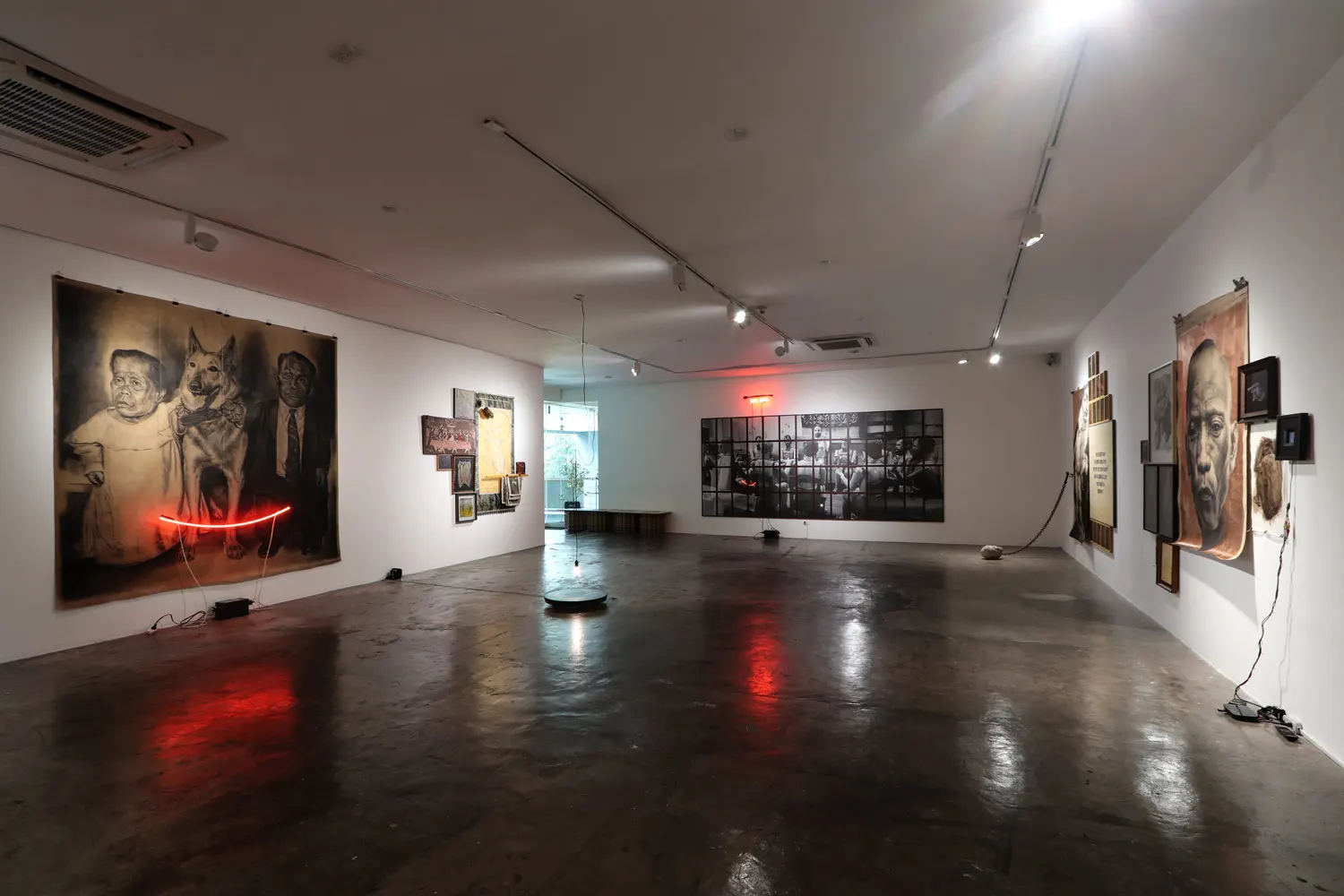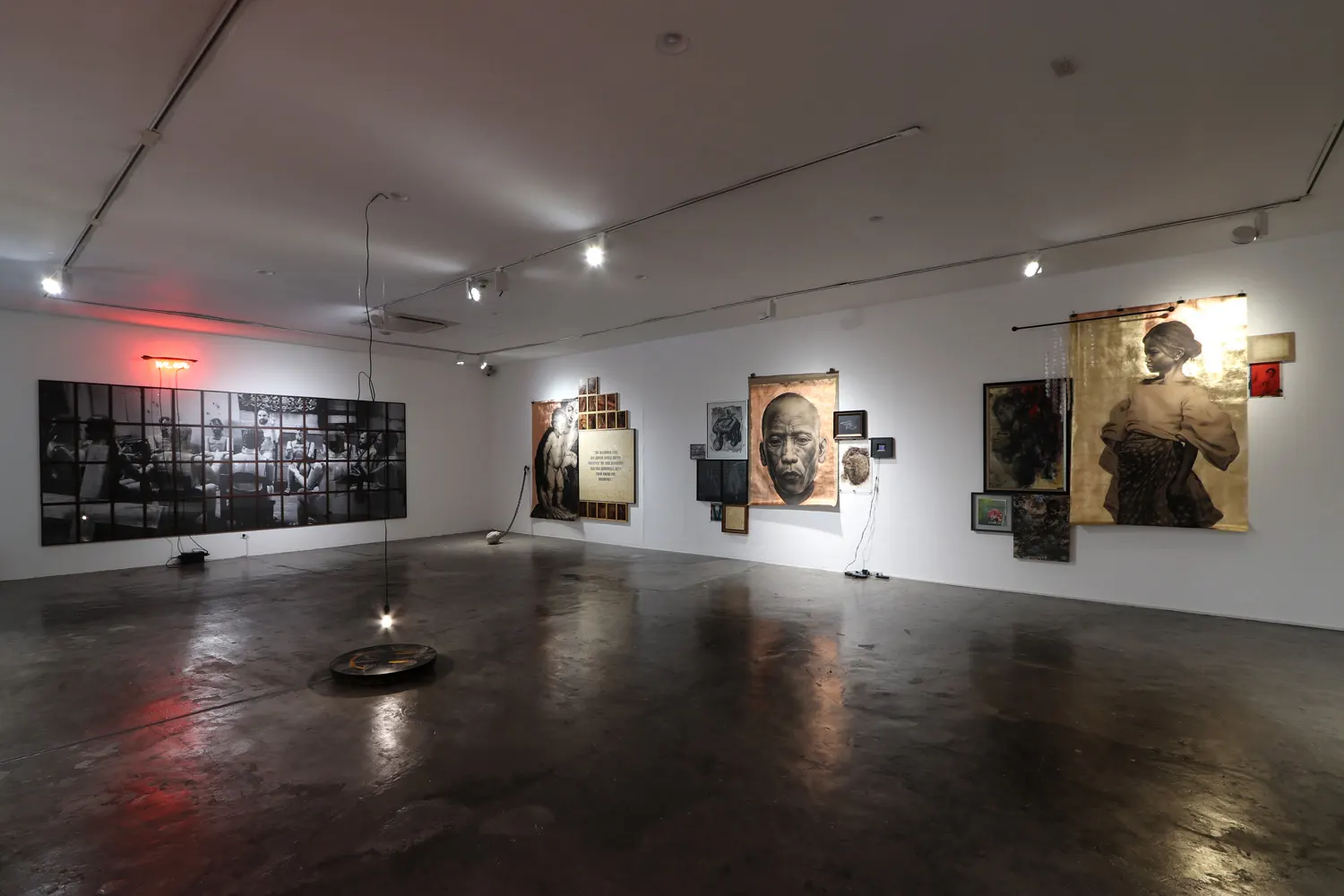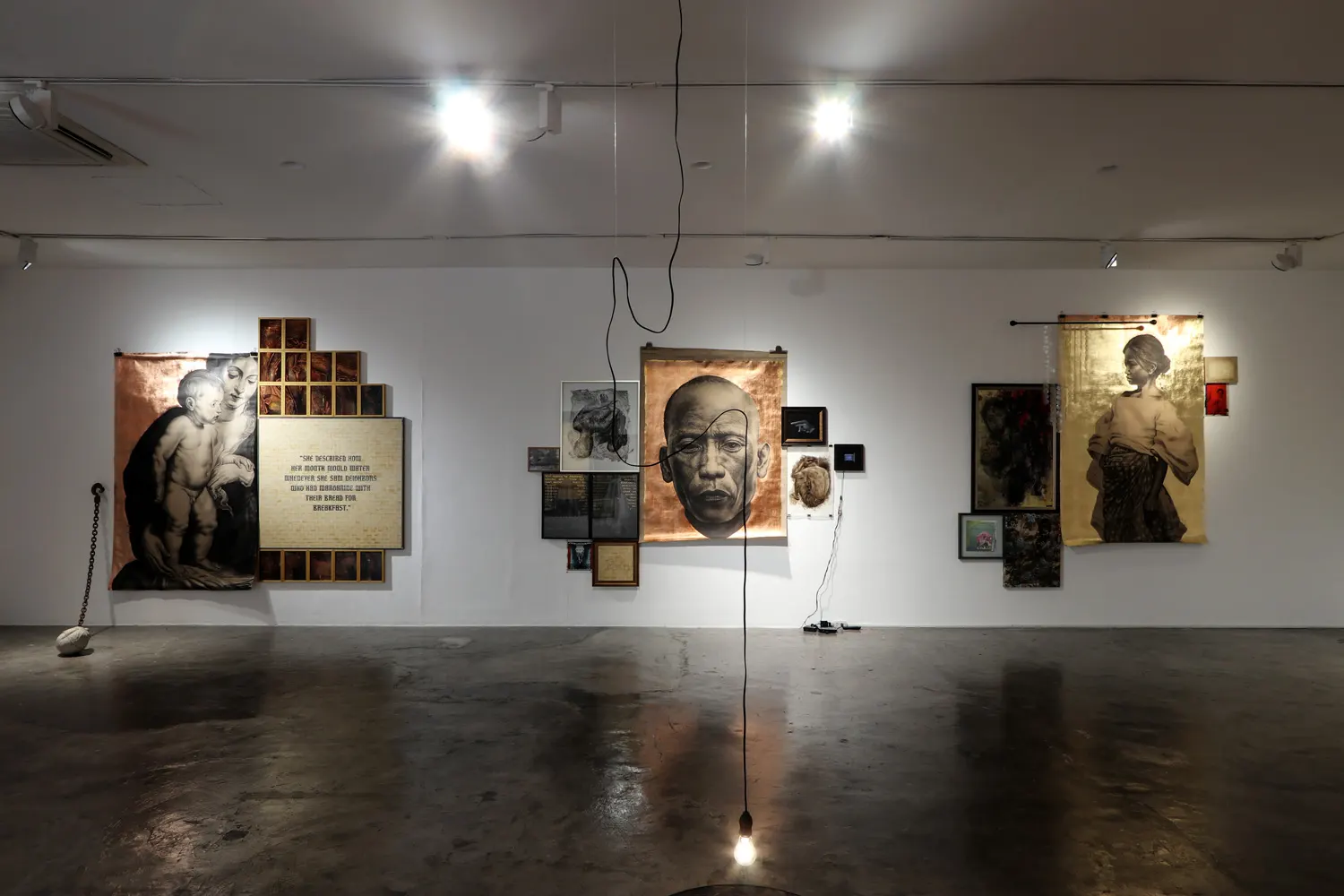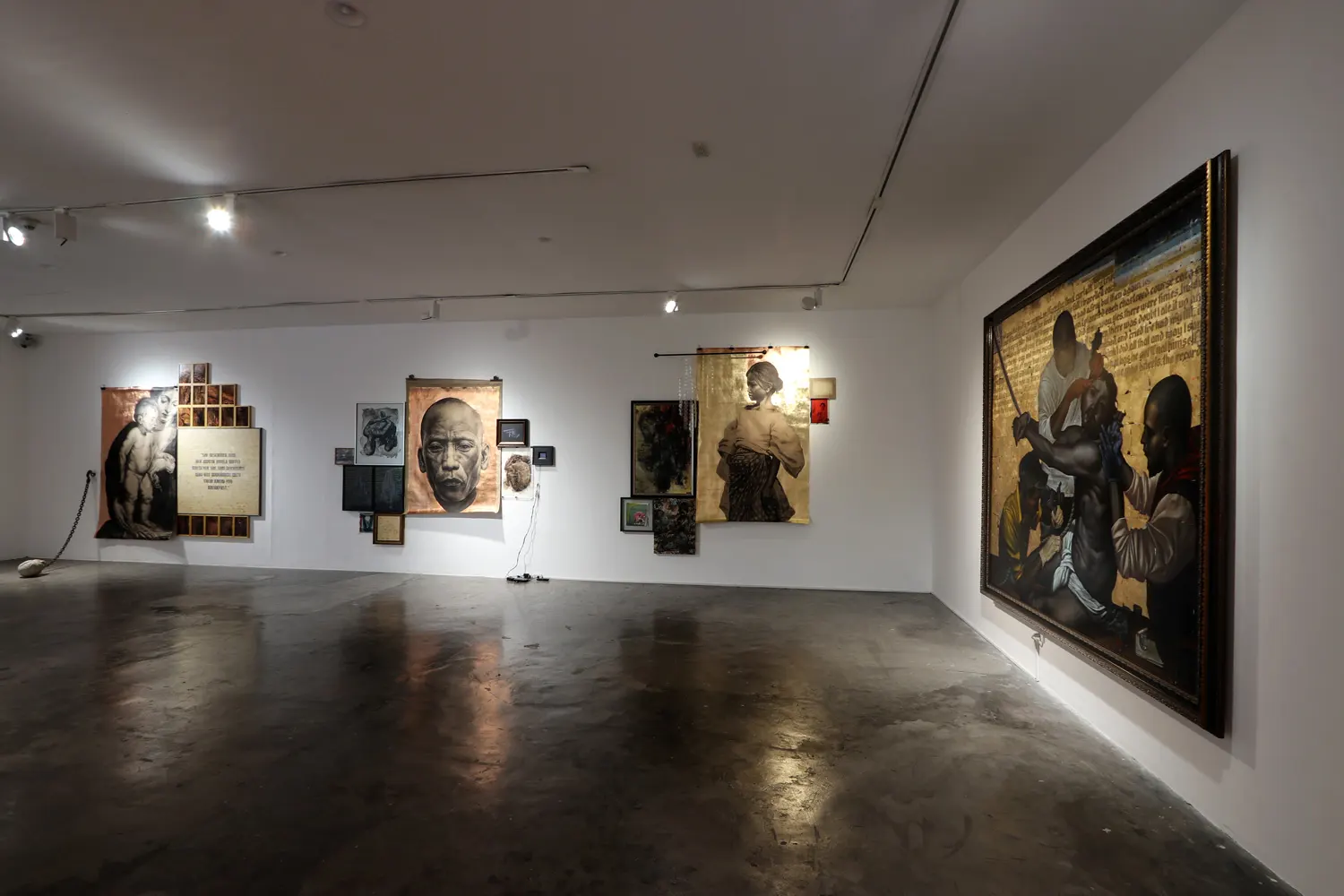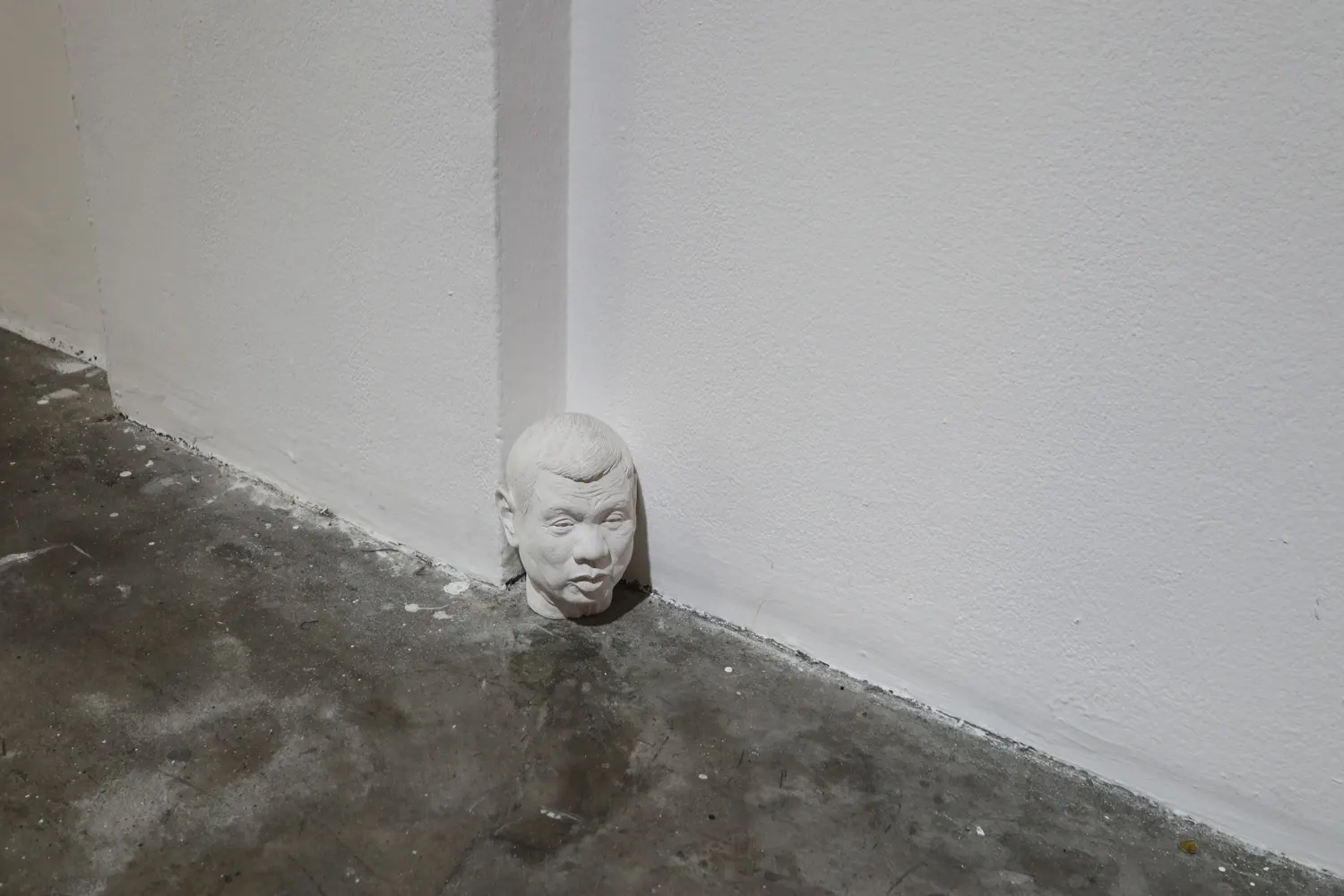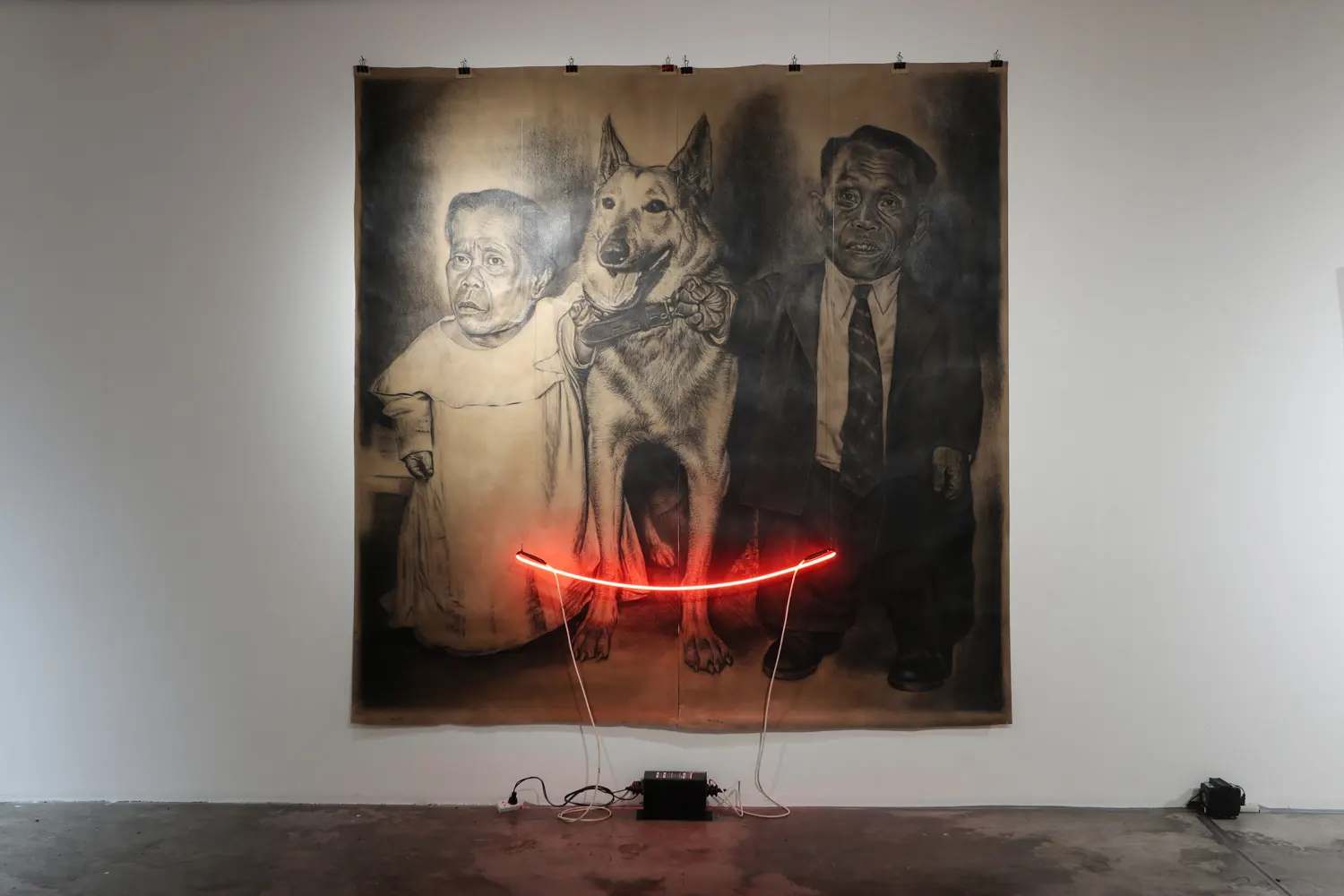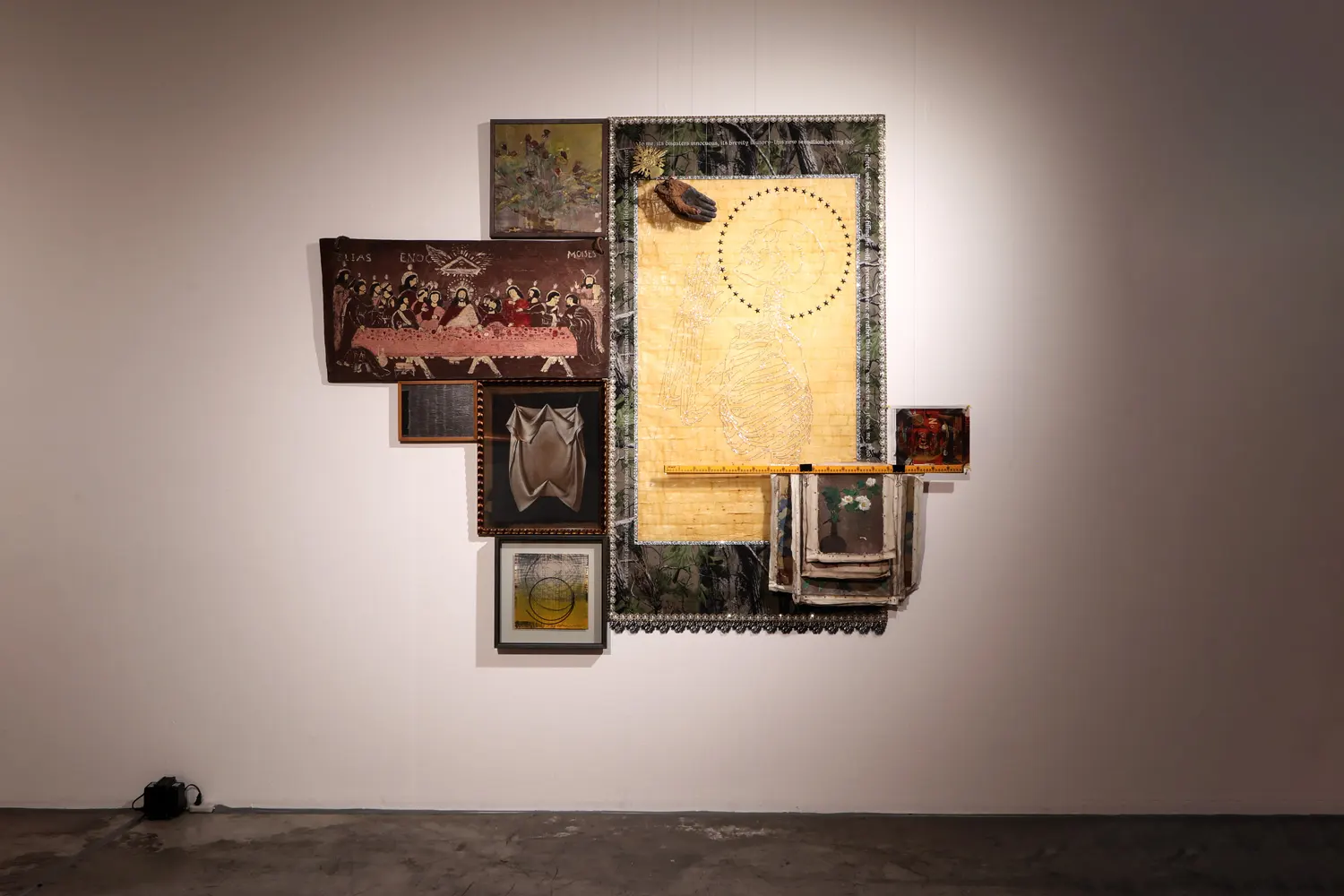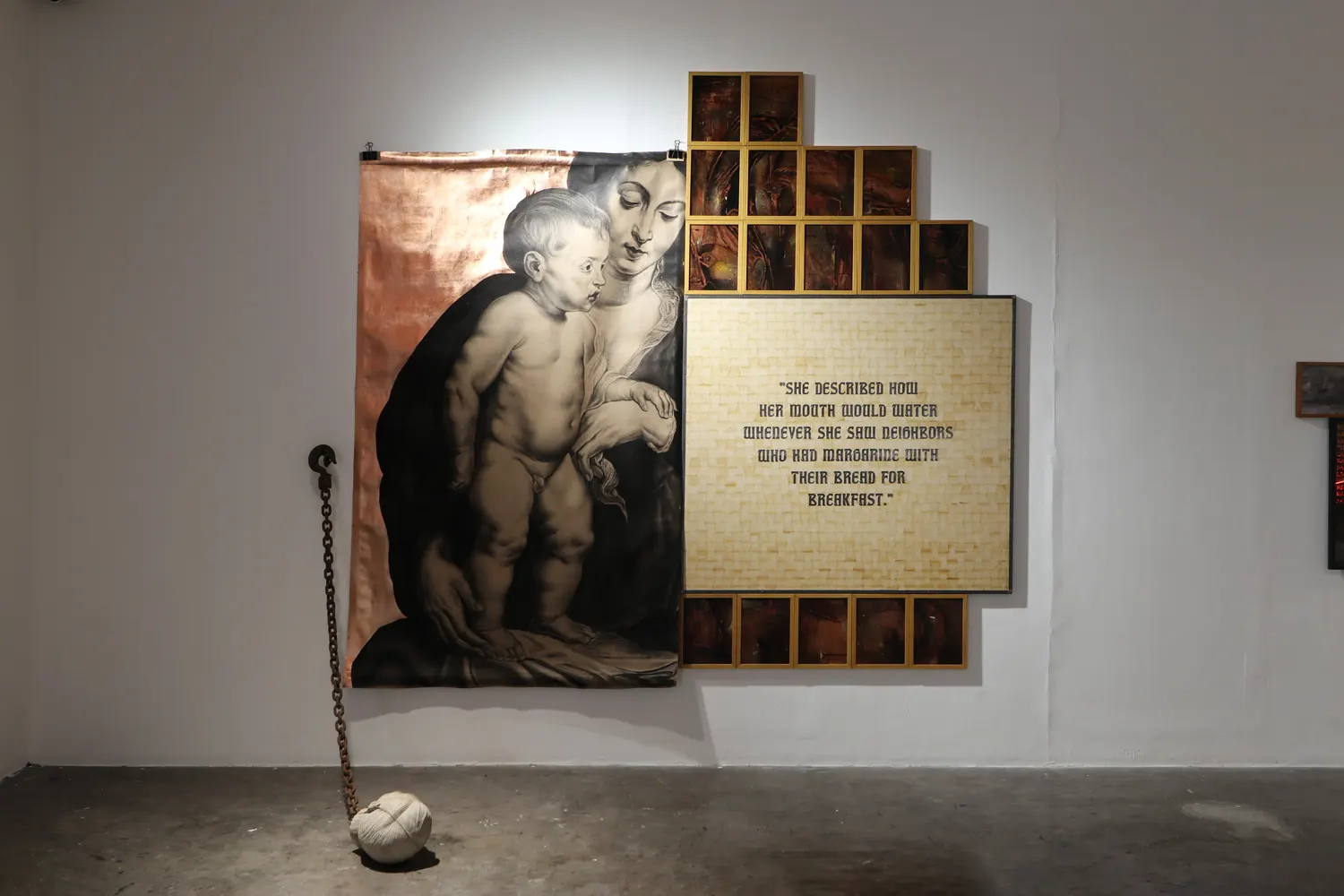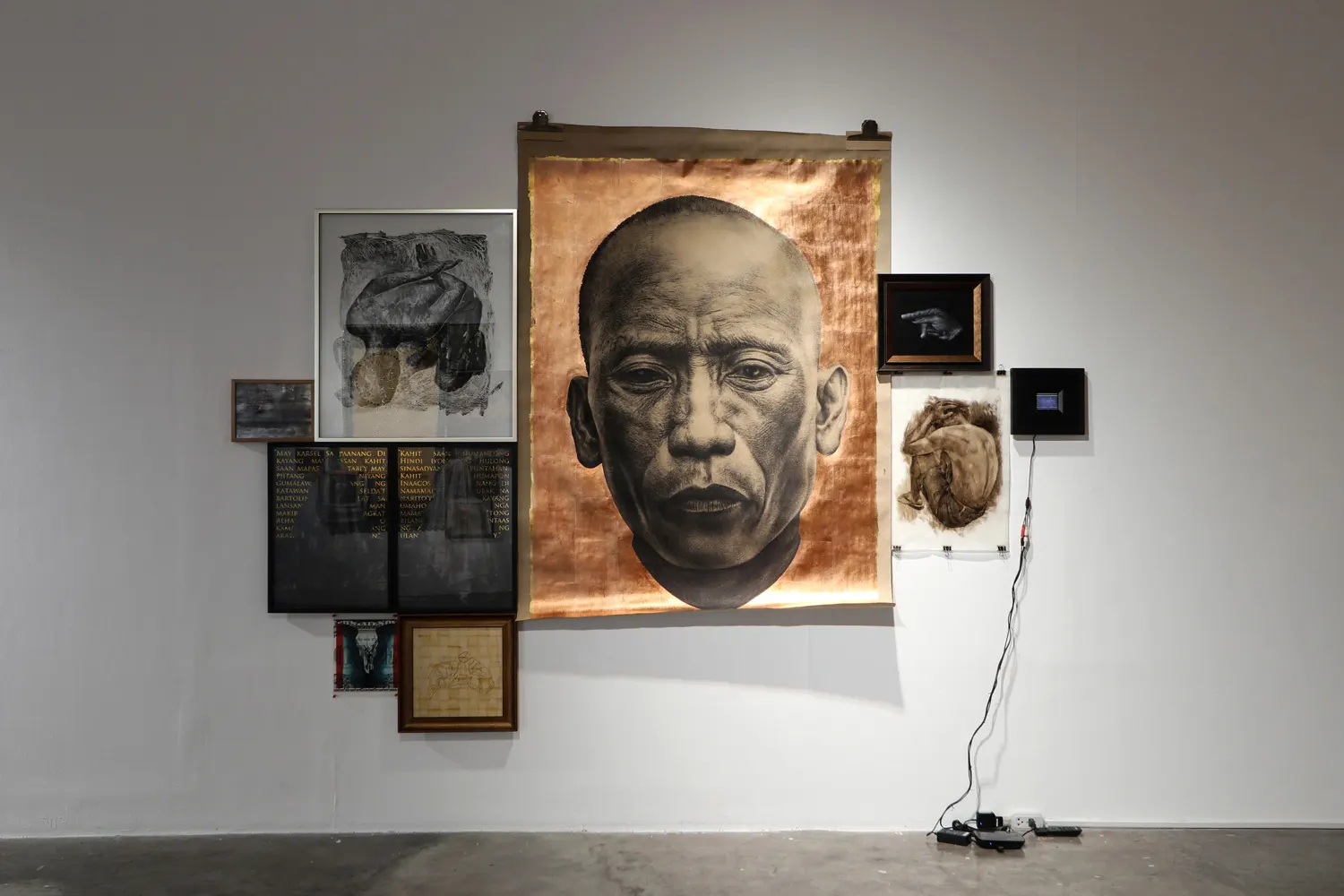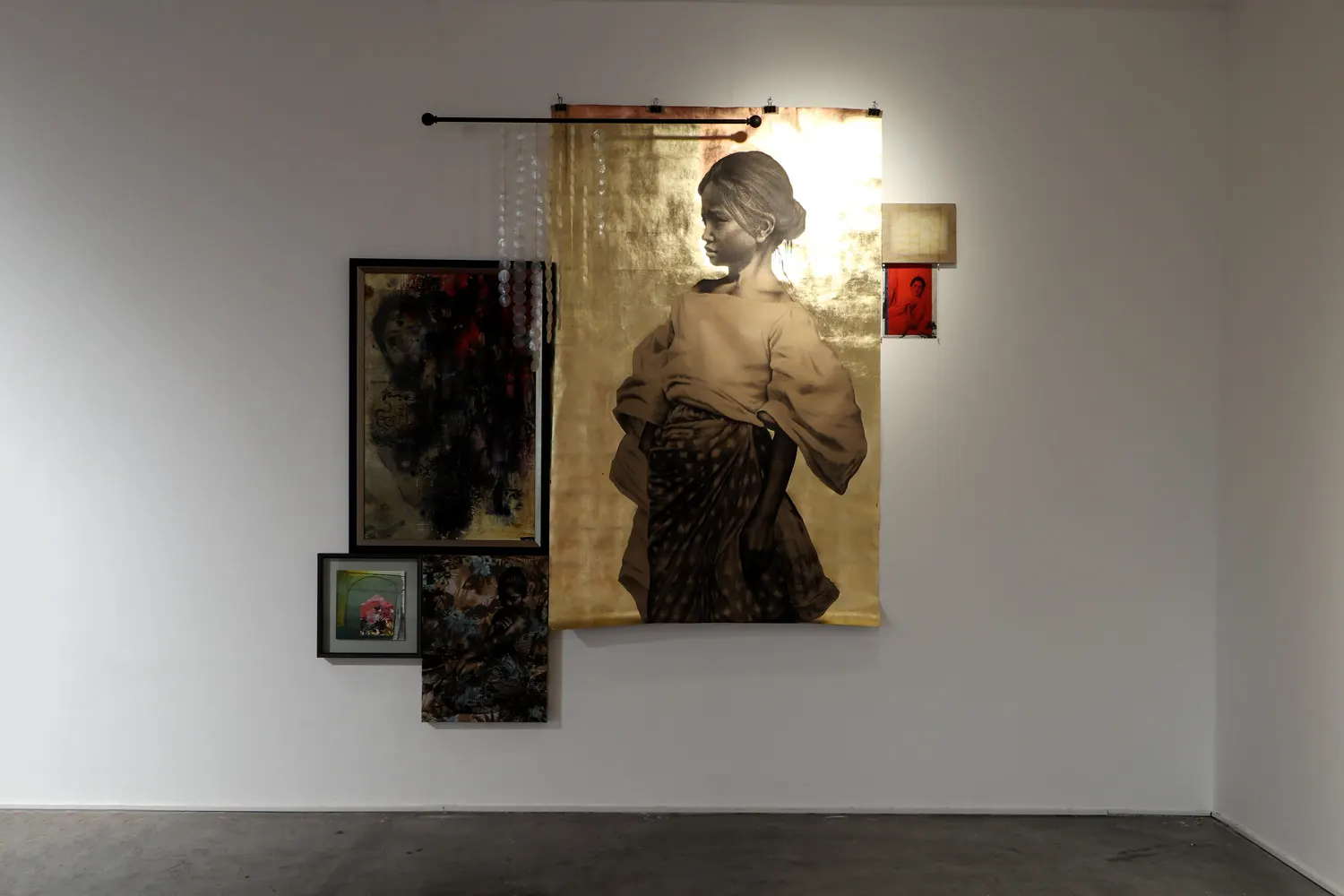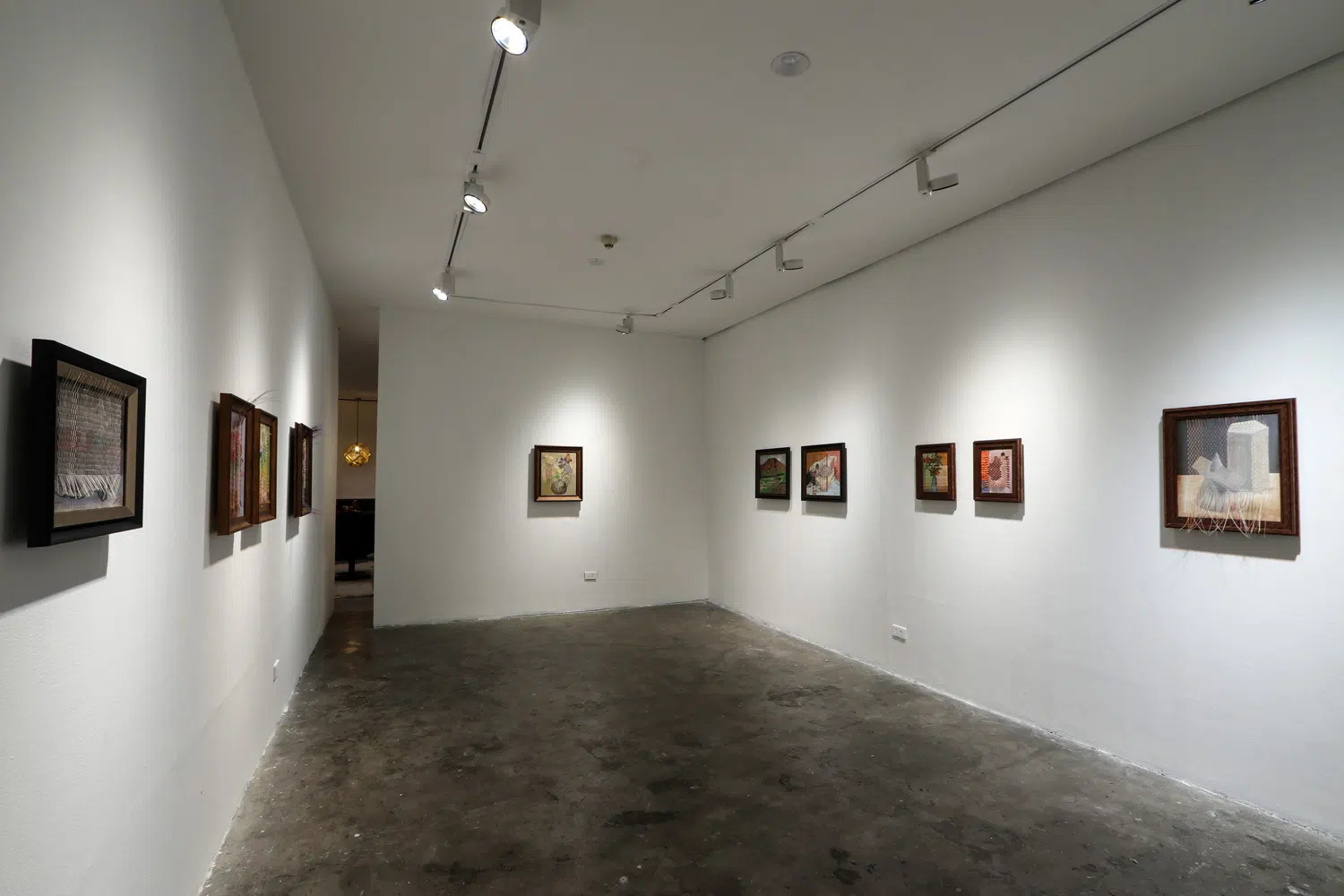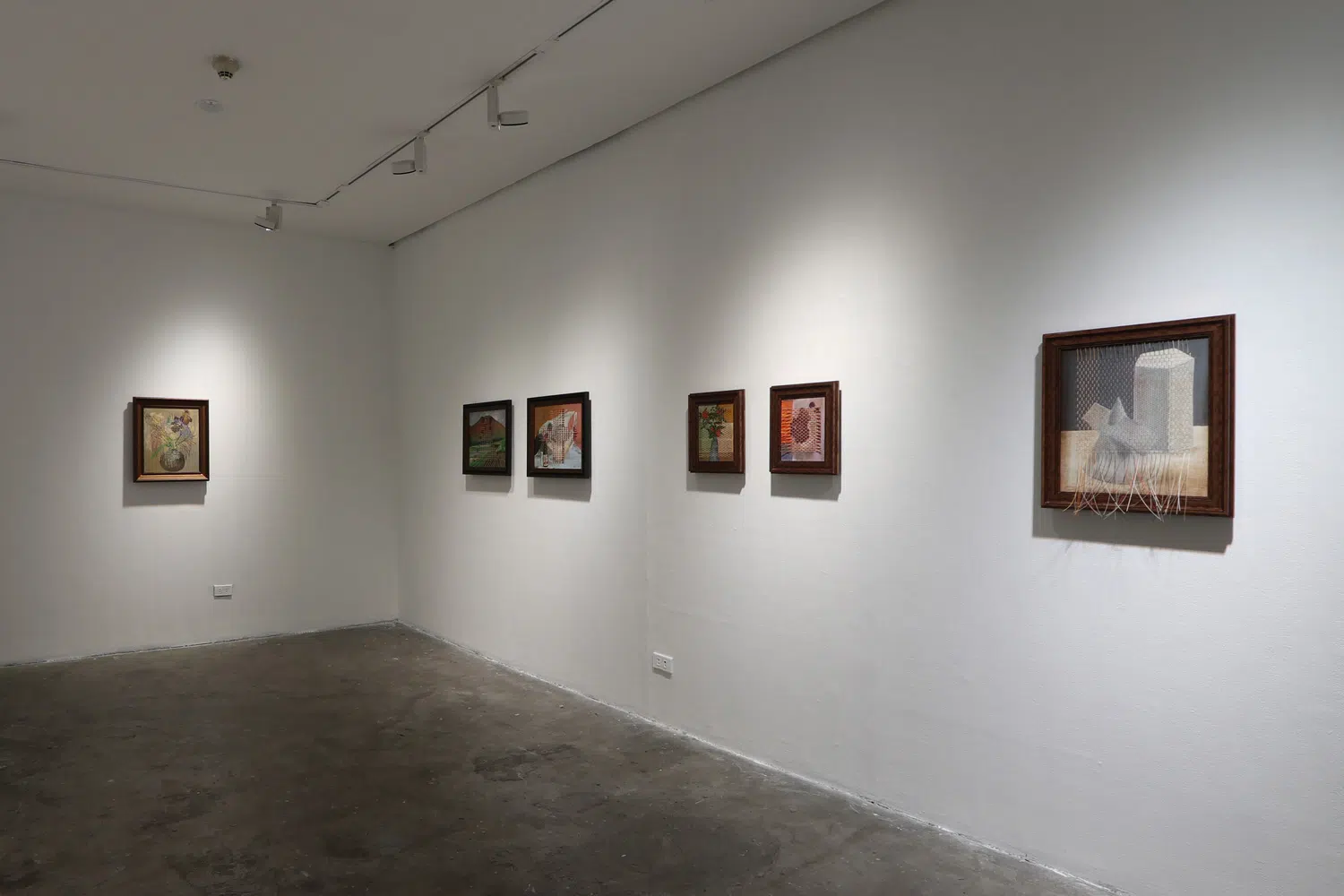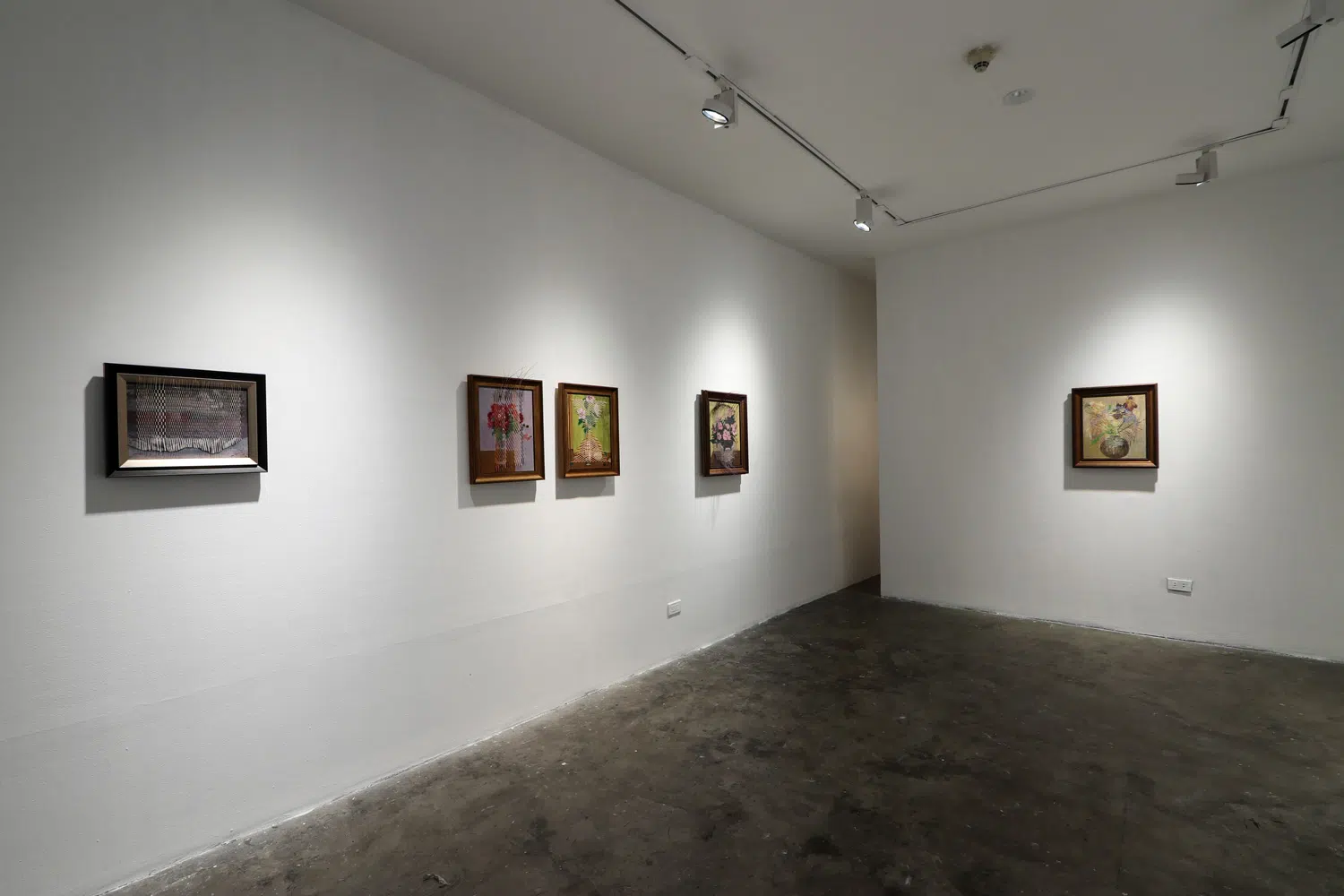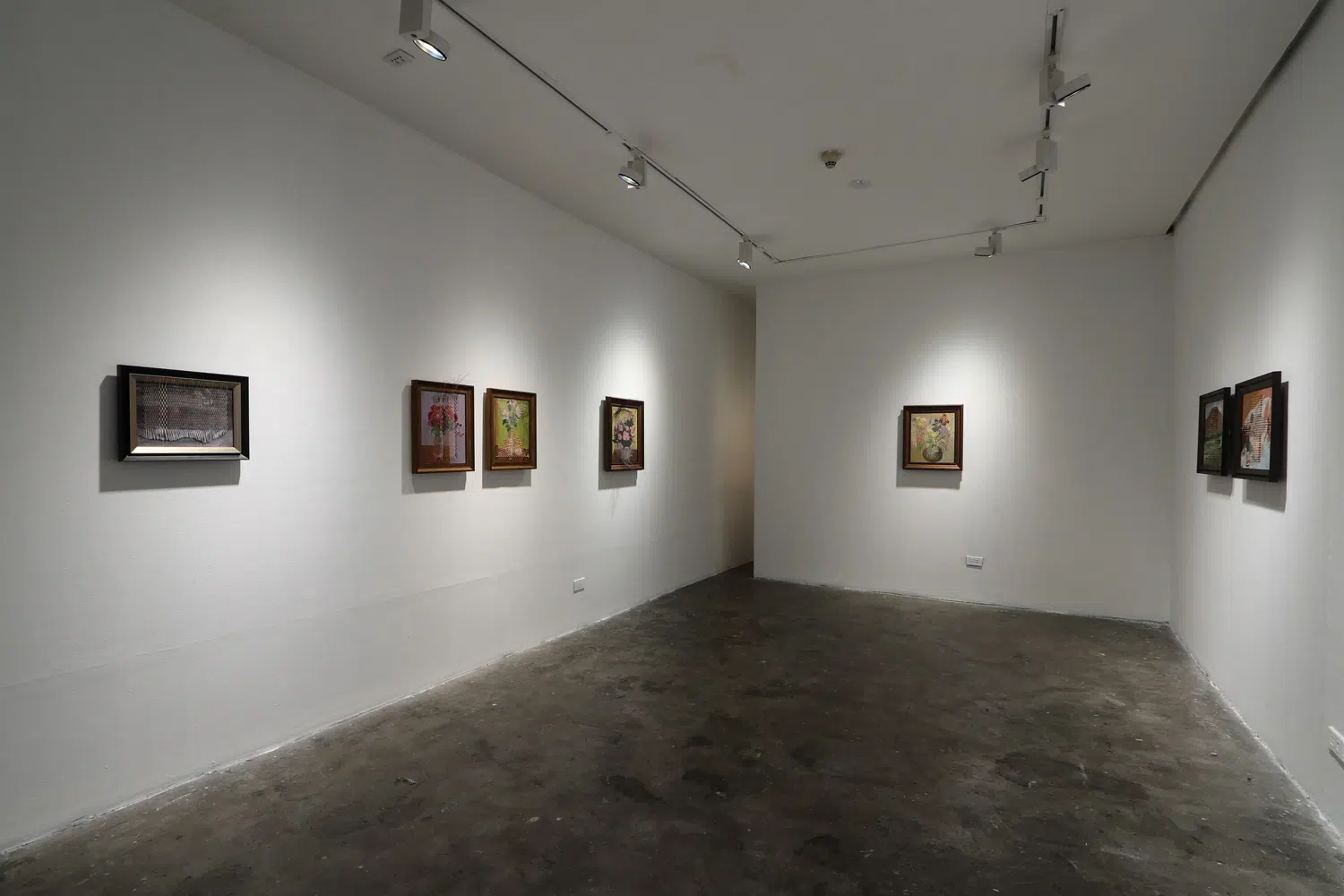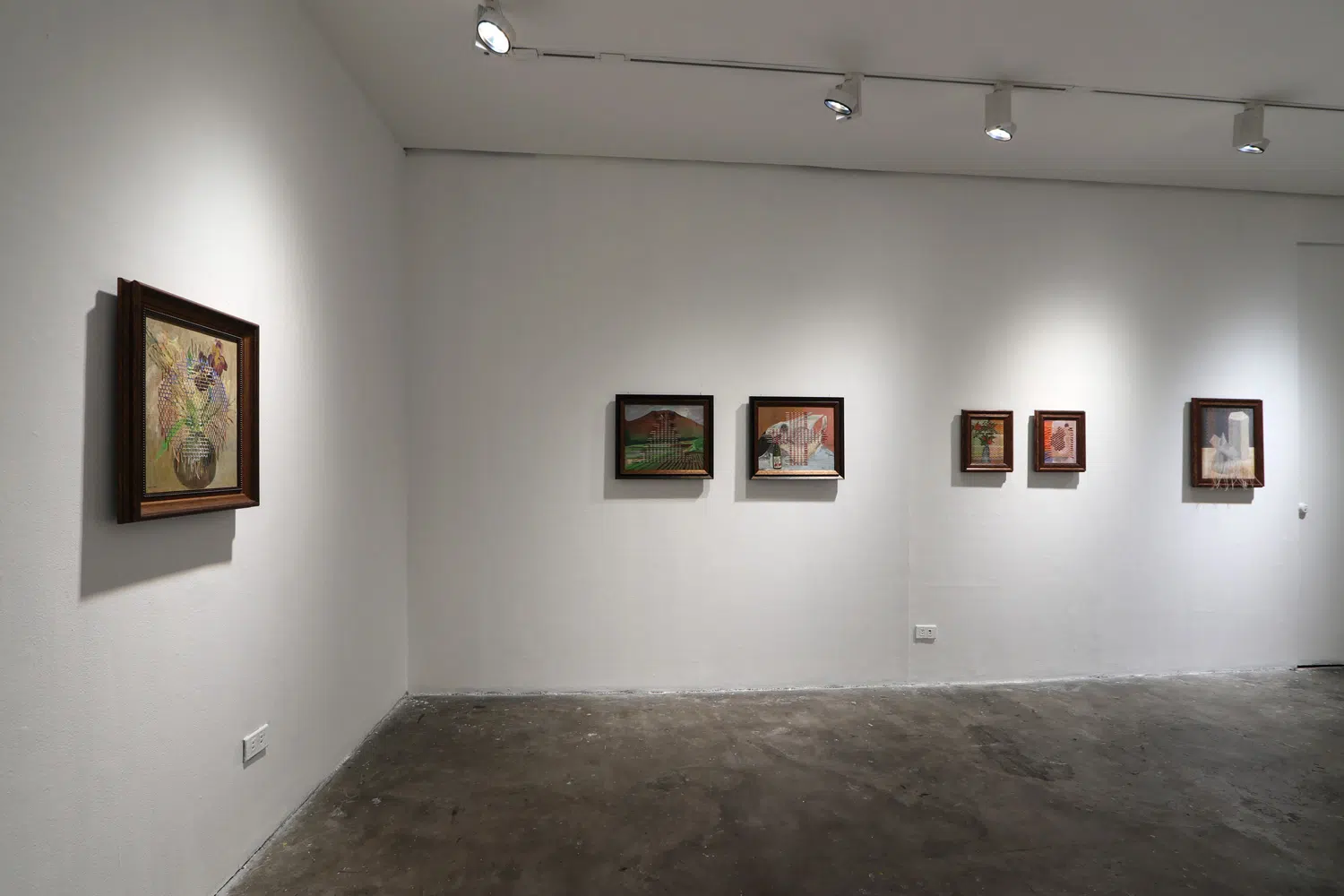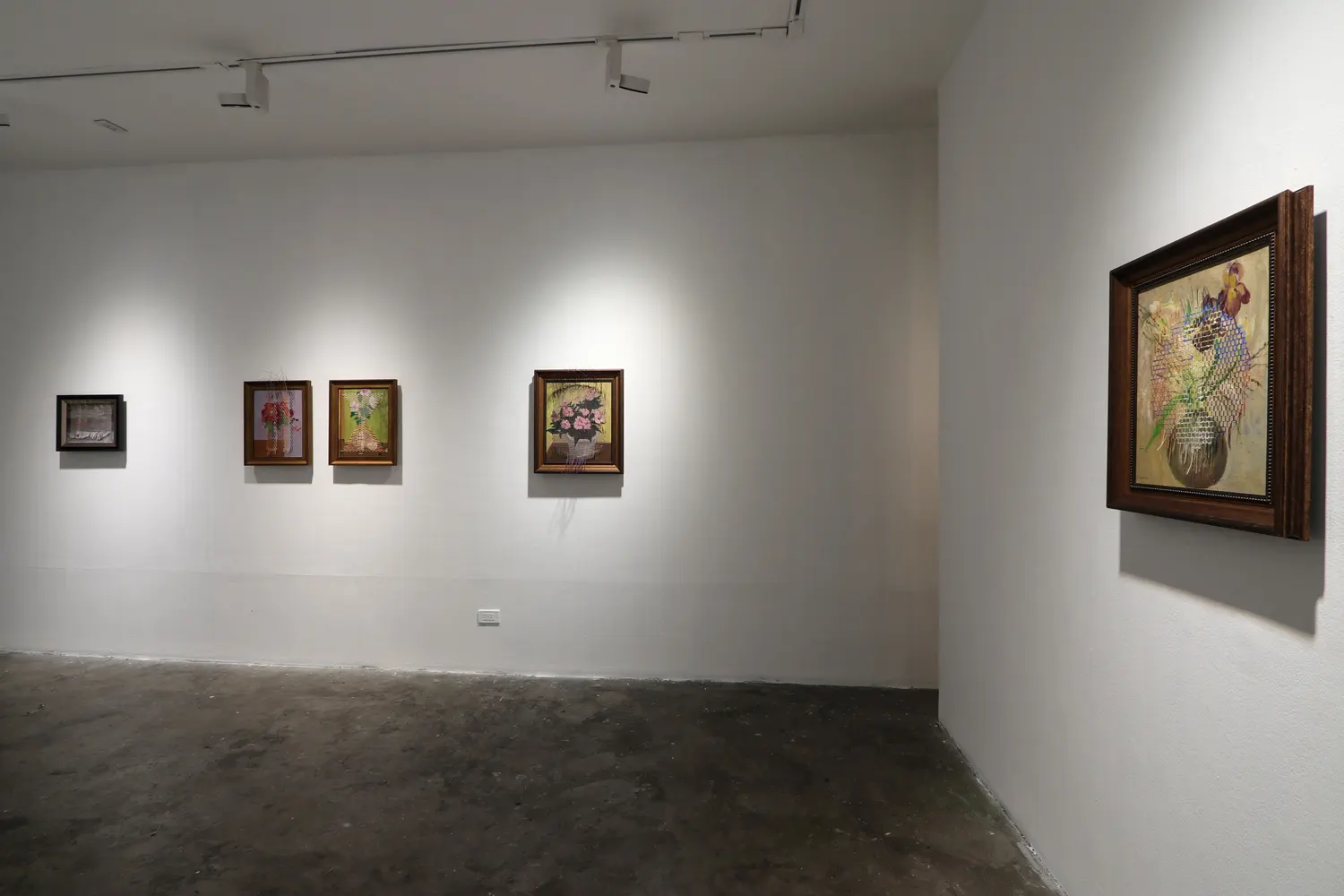AS JUDAS RECEIVES THE BREAD FROM CHRIST A SMALL BLACK DEVIL IS SHOWN ENTERING HIS MOUTH & Placebo Paintings
Leslie de Chavez
06 July - 04 August 2024
Curated by
06 July - 04 August 2024

As Judas Receivesthe Bread From Christ a Small Black Devil Is Shown Entering His Mouth
I. …so goes acaption that Leslie de Chavez read once, describing an image of the LastSupper. Dating to the Middle Ages, some centuries before da Vinci’s archetypalmural, this depiction of the event may strike one as atypical: in thebackground and surrounding Christ are a gaggle of apostles, haloed and loyal,looking on as Jesus passes the bread that would mark the traitor across thetable alone in the foreground – Judas, isolated from the communion, kneeling onthe cold floor of the congregation. Thus, this caption picks up from there –“As soon as Judas took the bread, Satan entered into him,” – so it goes in John13.
II. Jocelle Batapa-Sigue,DICT Undersecretary: “The Philippines is already first in terms of use ofinternet. The world average is only around six hours of internet use daily. Inthe Philippines, we have more than 10 hours exposure.”
III. In a sense, the outwardabilities ascribed to the Internet could be seen as witchcraft: instantcommunication, instant information, instant gratification, all achieved withthe aid of a mirror connected to crystals and minerals arranged in a specificformation, performed in an operation powered with harvested energy. As inwitchcraft, typically ascribed to pacts with demons at the expense of thewitch’s wellbeing, much has likewise been said of the transformative powers of thisaccess at every instant – with this ability comes the potential to betransformed by it, to lose one’s self in what it offers, to enter the world ithas created with no hope of returning unchanged.
IV. On one wall ofthe gallery, Judas’s own transformation in his acceptance of evil has alreadyborne fruit: Christ is tied to the whipping post, and he faces his punishmentat the hands of three men armed with tattoo guns. His fate is spelled outplainly in the background, “And now, the end is near/And so I face the finalcurtain.” Elsewhere, the child Christ stands on his mother’s lap. Next to them arethe cut-up fragments of a Picasso, purchased with funds taken from governmentcoffers. Between these two, a quote from the Picasso’s buyer, lamenting thepoverty she grew up with, while her husband’s bust stares empty, chained to theground. A skeleton, barely discernible from the pig guts it has been stitchedinto, raises its bony fingers to the heavens, its skull ringed by a halo ofstars. A couple with dwarfism holds a German shepherd by the collar. A youngwoman in a baro’t saya gazes into the distance, or perhaps toward the figures onan adjacent canvas –an Old Master and the lover he murdered, Eve naked in the Gardenof Eden standing next to the National Hero, all obscured under layers andlayers of pigment and ink.
V. “Nothing can beknown unless it is known in situ, in the context of its world. Transformationaims at the continuum of all perceptions. Poetry is this continuum. Poetryestablishes the mutual relevance of every percept to every other percept.”(Robert Kelly, notes on the poetry of deep image. 1960)
Placebo Paintings
“The world is full ofobjects, more or less interesting; I do not wish to add any more.”
- DouglasHuebler
The tradition ofBuntal weaving has long been an industry associated with Quezon province. Usingfibers taken from the Buri palm, Buntal weaving is typically used in makingmats, fans, and most famously, Buntal hats, which have taken on the forms ofwide-brimmed farmer’s hats, women’s sun hats, or men’s fedoras. Despite itslong tradition, however, this industry has declined, facing competition fromforeign factories with faster, machine-made weaving techniques, hardiermaterials, and cheaper costs. The traditional methods only continue to live onin small handicraft and souvenir stores in the province, and as a hobby thatelderly Quezon natives pursue in their free time.
Leslie de Chavezhas likewise taken this on as a hobby, discovering that losing oneself in thefibers and focusing on the rhythm of the weave helps to free a mind stuck in acreative rut. Digging around in surplus stores and thrift shops is anotherhobby that he pursues, and one particular item in these shops that he keeps aneye out for are paintings – small to medium-sized ones, evidently done in theyoung, amateurish style typical of students enrolled in art classworkshops.
This collection of paintingsforms the base of Leslie’s series of Placebo Paintings. Regarding the paintingsas objects on their own, Leslie has taken to modifying and interacting with theforms depicted on them, slashing through the canvas and then binding it backtogether with Buntal – an act of damage, immediately followed by repair. Thishealing likewise echoes the therapeutic, meditative quality that Leslie hasfound in the weaving process, effectively healing the artist and the paintingsat the same time.
In literally weavingthe Filipino tradition of Buntal together with objects done in the Westerntraditions of still life and landscape painting, what emerges from this fusionare wholly new objects, neither weaving nor painting yet simultaneously both,their forms distinctly abstracted and contemporary. Here, a mountain range hasbeen flipped onto its peaks, the rest of its body patched over by weft andwarp. A bouquet’s colors burst out of the canvas in a spray of fiber, a bunchof grapes vanishes amid a grid of orange and purple, their clusters nowindiscernible and unfamiliar – a new way of looking at objects and traditionslong considered old.
About the Artist
About the Artists

Manila-born Filipino artist Leslie de Chavez has been widely recognized for his incisive and sensible forays into history, cultural imperialism, religion, and contemporary life. Responding to urgent material conditions through his deconstructions of master texts, icons, and the symbols of his times, de Chavez strikes a balance between iconoclasm and an affirmative outlook to the relevance and accountability of art to one’s milieu. Leslie de Chavez has held several solo exhibitions in the Philippines, China, Korea, Singapore, UK, and Switzerland. He has also participated in several notable exhibitions and art festivals, which include the “Island Time” Jane Lombard Gallery in NYC 2023, “Far Away But Strangely Familiar” Danubiana Meulensteen Art Museum, Slovakia 2019, “Voice of Asia” Arario Gallery, Shanghai China 2017, “The Vexed Contemporary” Museum of Contemporary Art and Design, Manila 2015, “Complicated” Lopez Memorial Museum 2014, the Singapore Biennale 2013, 3rd Asian Art Biennale in Taiwan 2011, 3rd Nanjing Triennial in China 2008, First Pocheon Asia Biennale in South Korea 2007. A two-time award winner (2010/2014) of the Ateneo Art Awards for Visual Art, Leslie de Chavez is also the director/founder of the artist-run initiative Project Space Pilipinas, in Lucban, Quezon.
Related Exhibitions
About the Artists
About the Artist
Manila-born Filipino artist Leslie de Chavez has been widely recognized for his incisive and sensible forays into history, cultural imperialism, religion, and contemporary life. Responding to urgent material conditions through his deconstructions of master texts, icons, and the symbols of his times, de Chavez strikes a balance between iconoclasm and an affirmative outlook to the relevance and accountability of art to one’s milieu. Leslie de Chavez has held several solo exhibitions in the Philippines, China, Korea, Singapore, UK, and Switzerland. He has also participated in several notable exhibitions and art festivals, which include the “Island Time” Jane Lombard Gallery in NYC 2023, “Far Away But Strangely Familiar” Danubiana Meulensteen Art Museum, Slovakia 2019, “Voice of Asia” Arario Gallery, Shanghai China 2017, “The Vexed Contemporary” Museum of Contemporary Art and Design, Manila 2015, “Complicated” Lopez Memorial Museum 2014, the Singapore Biennale 2013, 3rd Asian Art Biennale in Taiwan 2011, 3rd Nanjing Triennial in China 2008, First Pocheon Asia Biennale in South Korea 2007. A two-time award winner (2010/2014) of the Ateneo Art Awards for Visual Art, Leslie de Chavez is also the director/founder of the artist-run initiative Project Space Pilipinas, in Lucban, Quezon.

Related Exhibitions

Share

.webp)

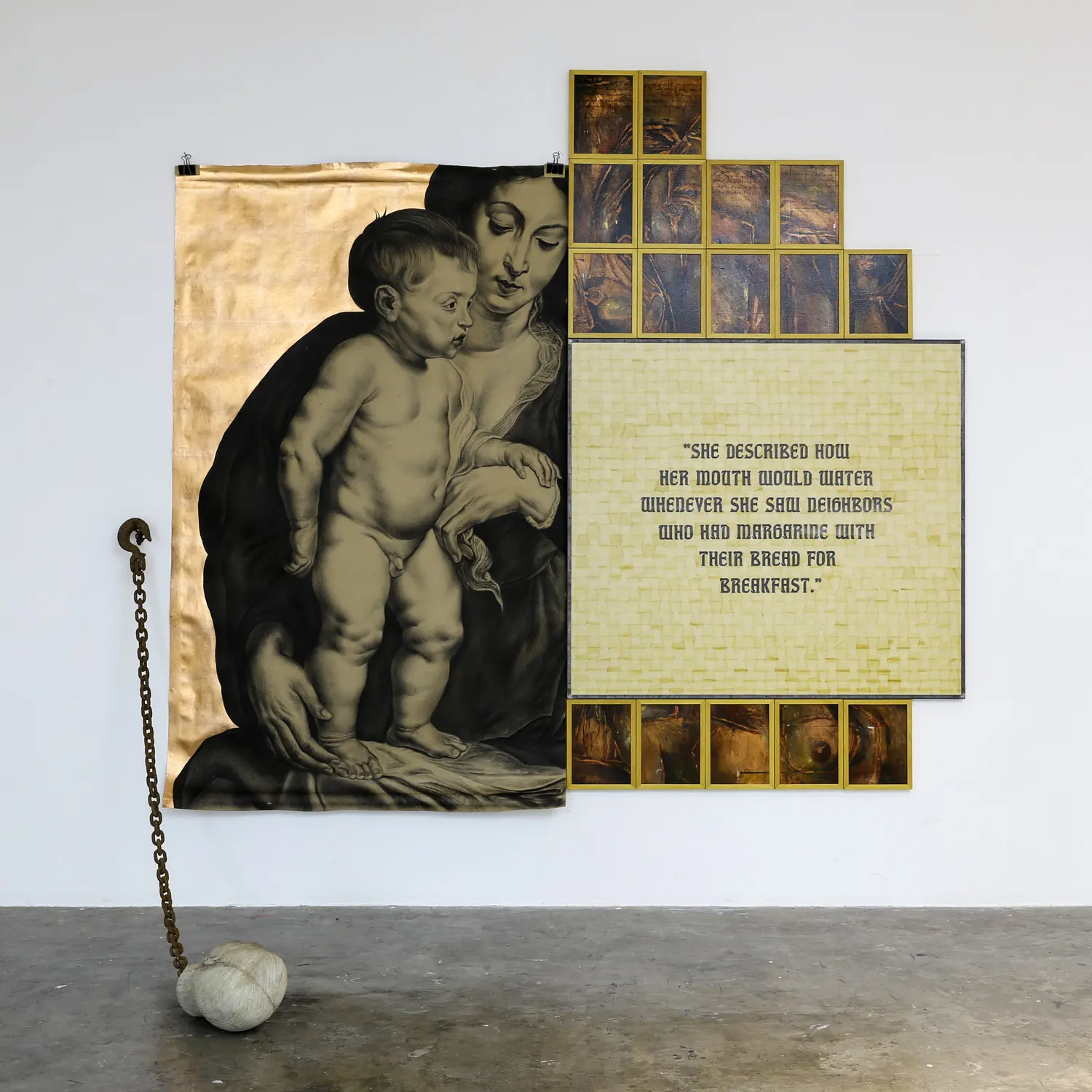
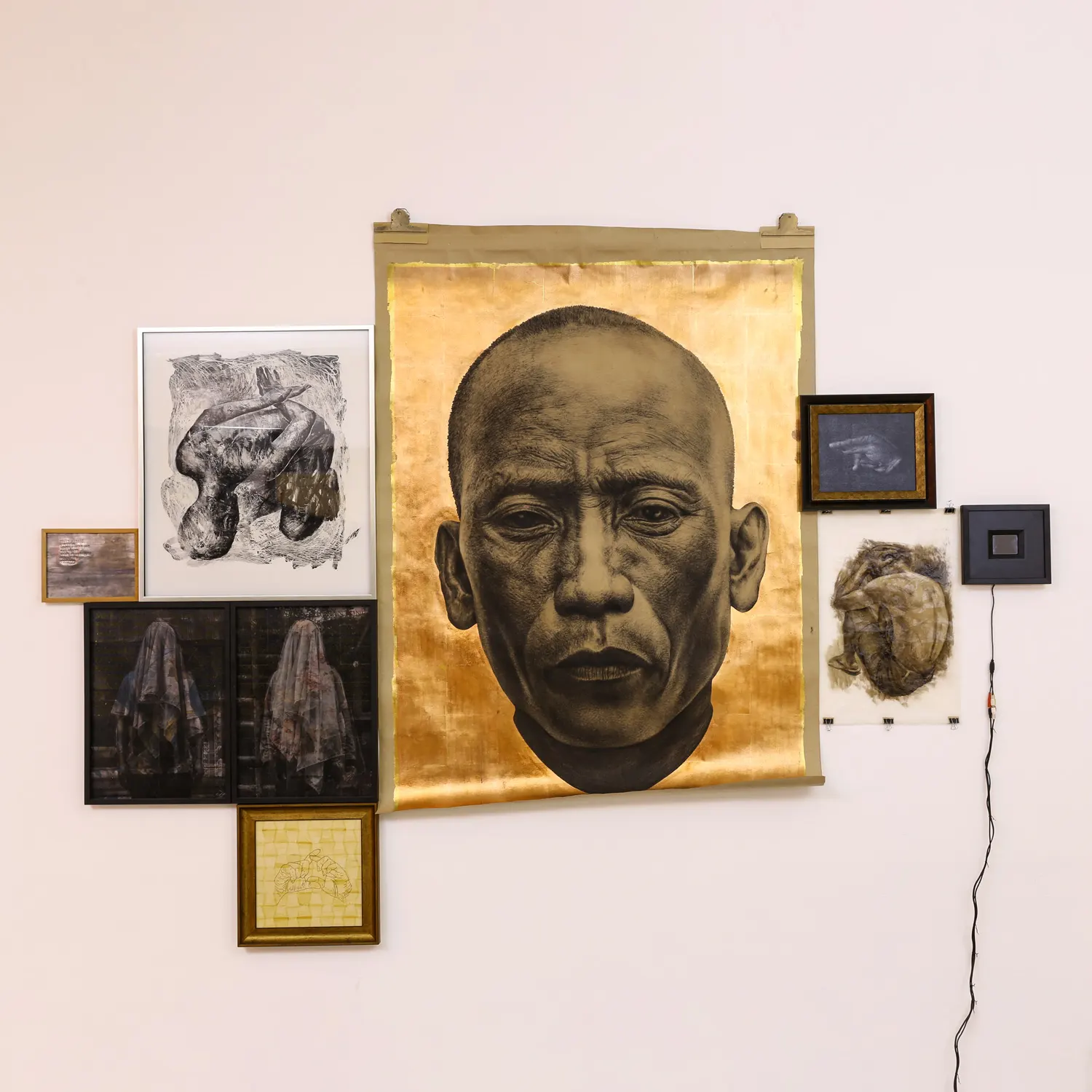
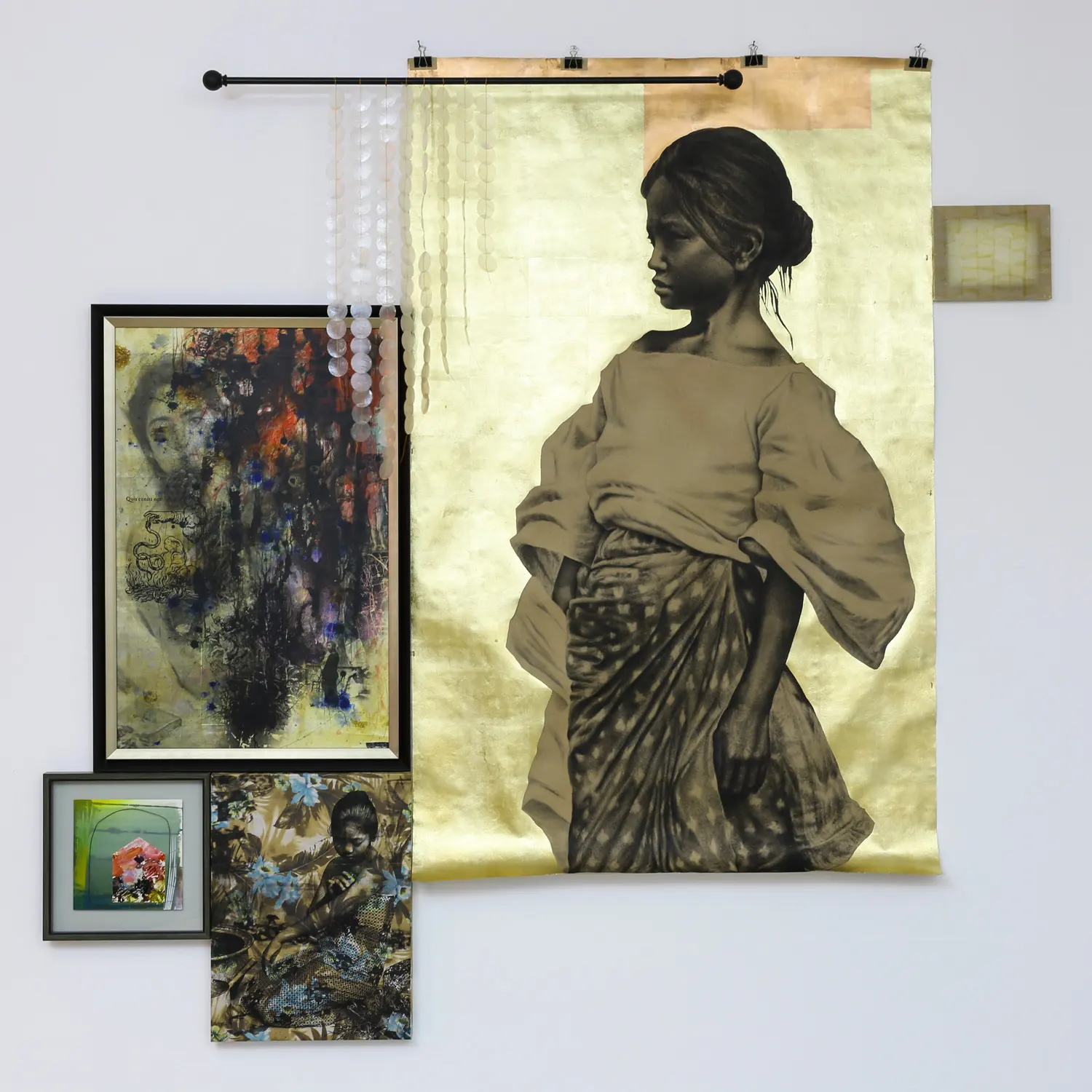
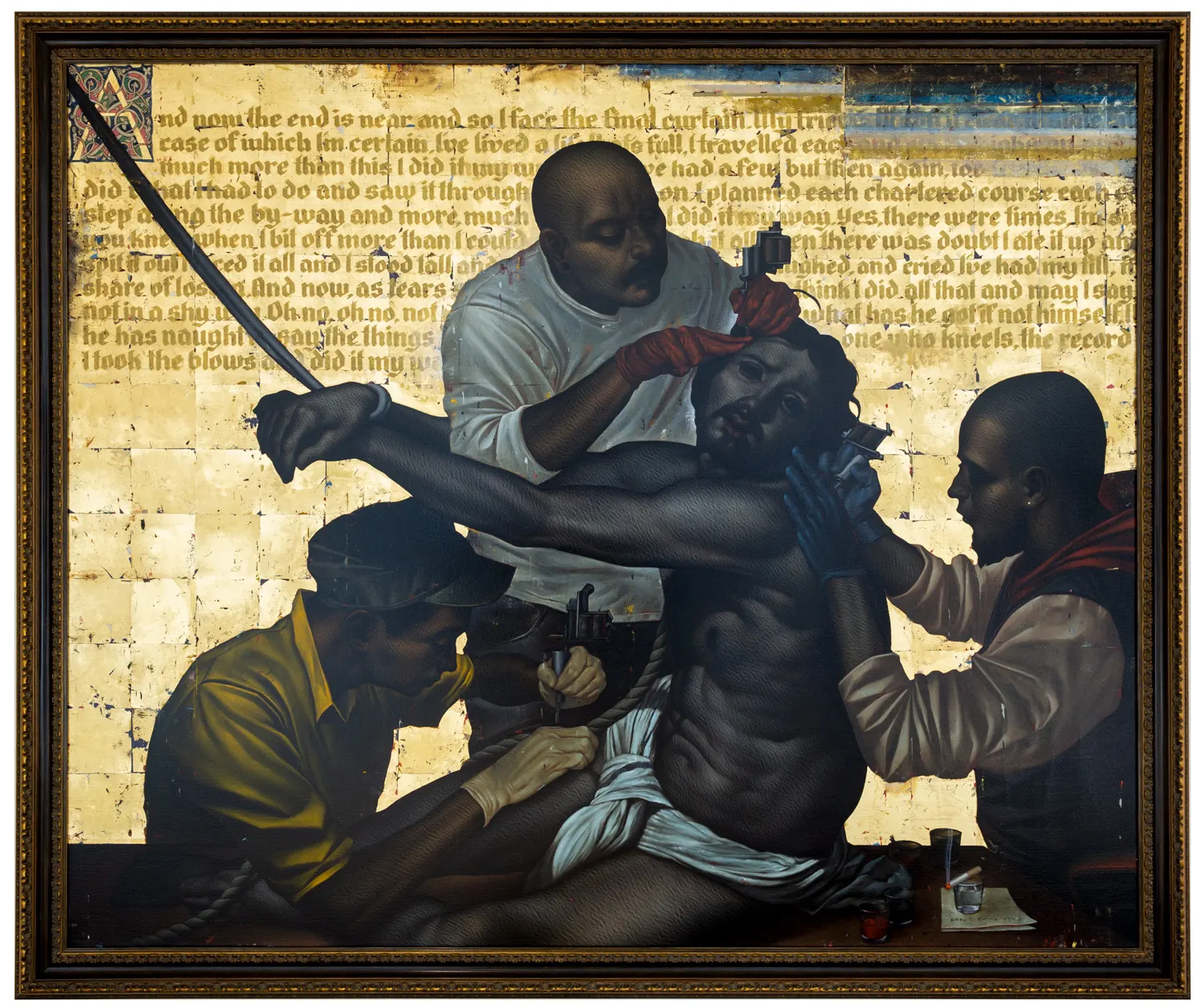
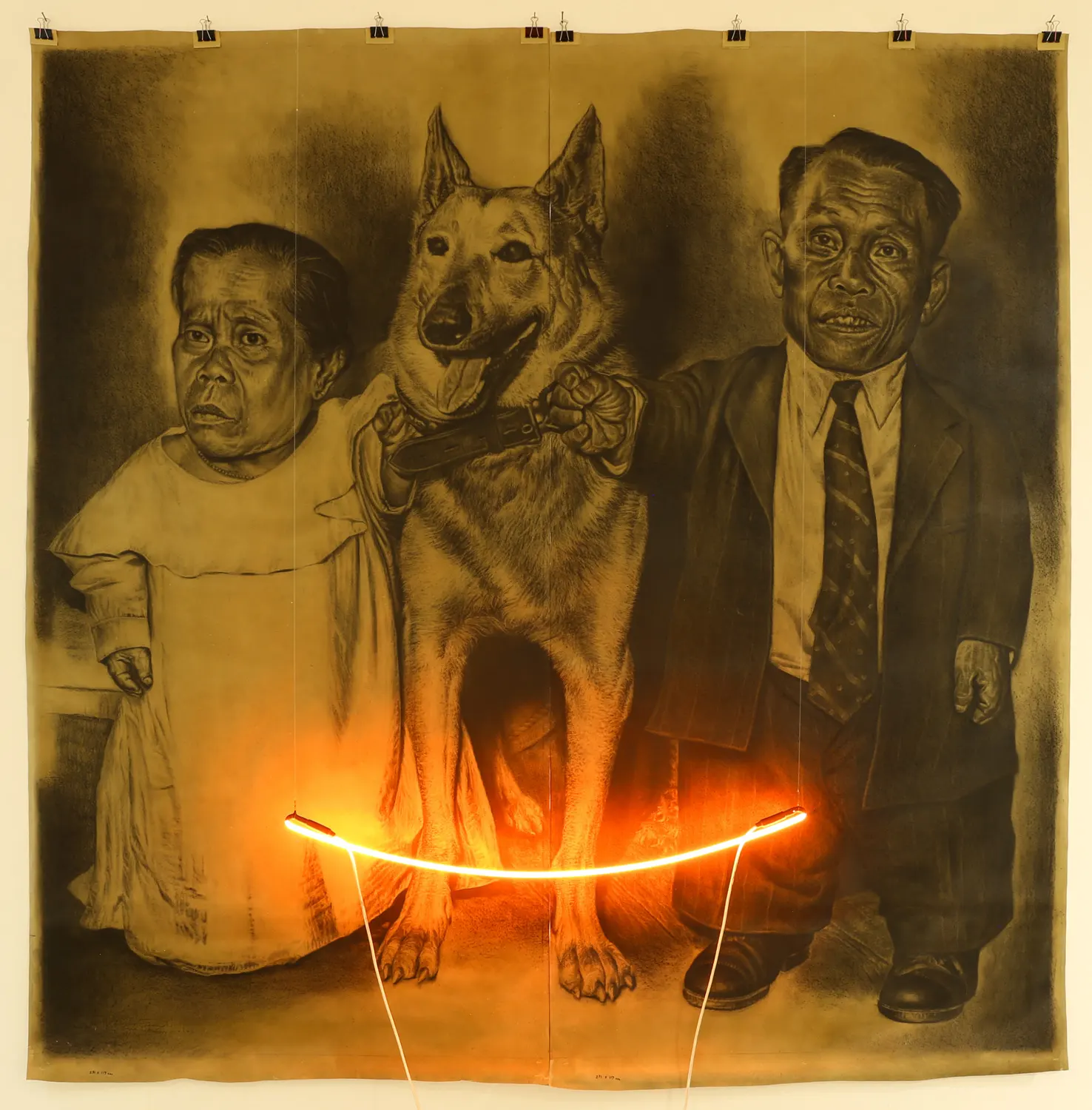
.webp)
